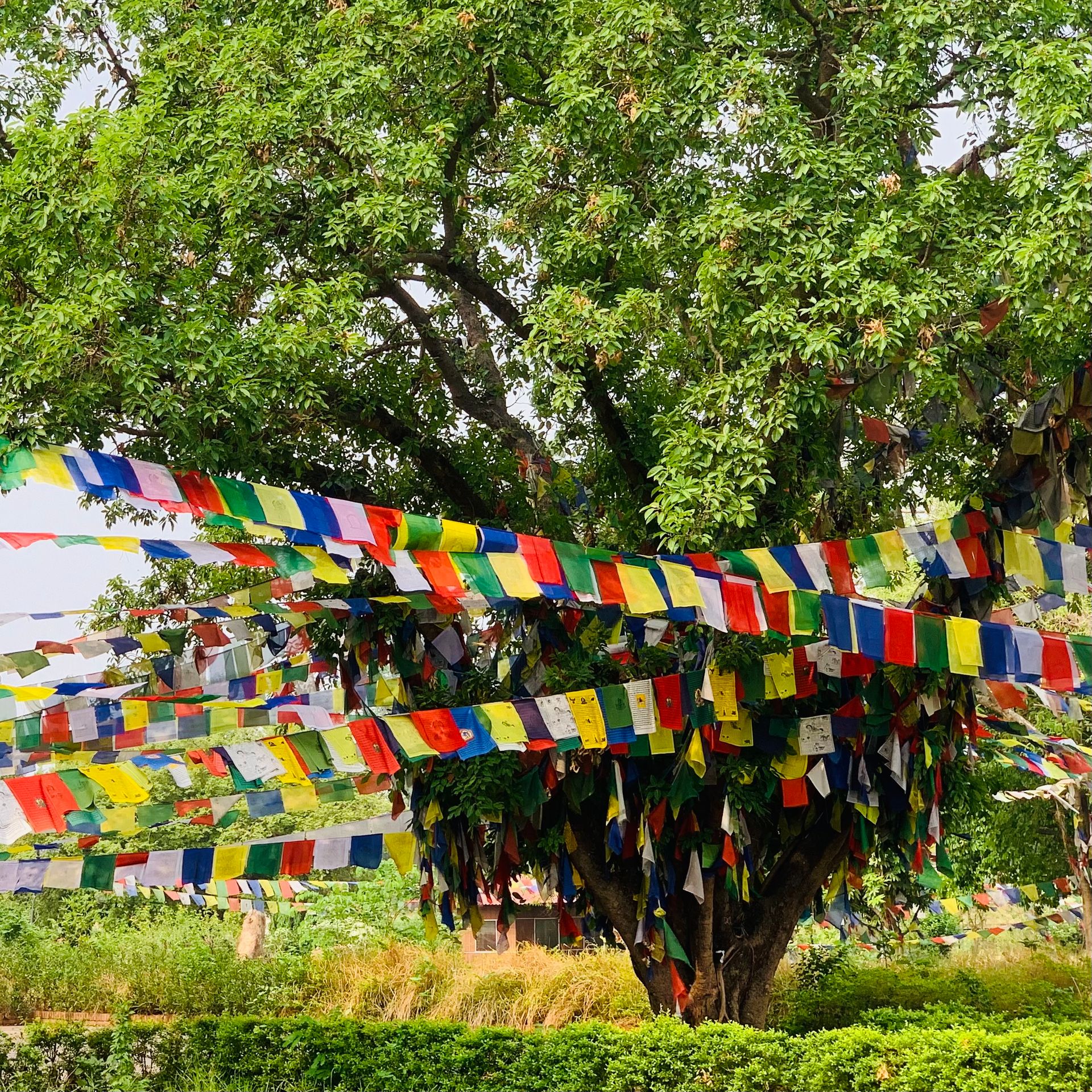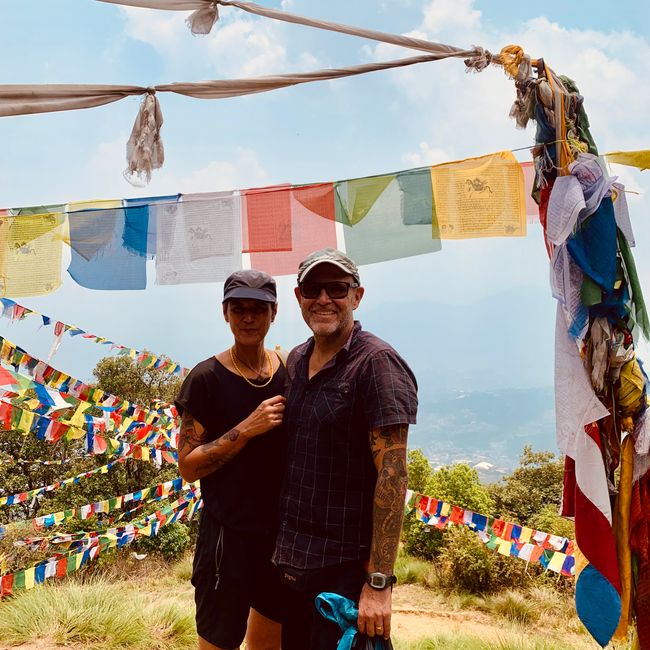Armenia - July/August 2023
Објављено: 23.08.2023
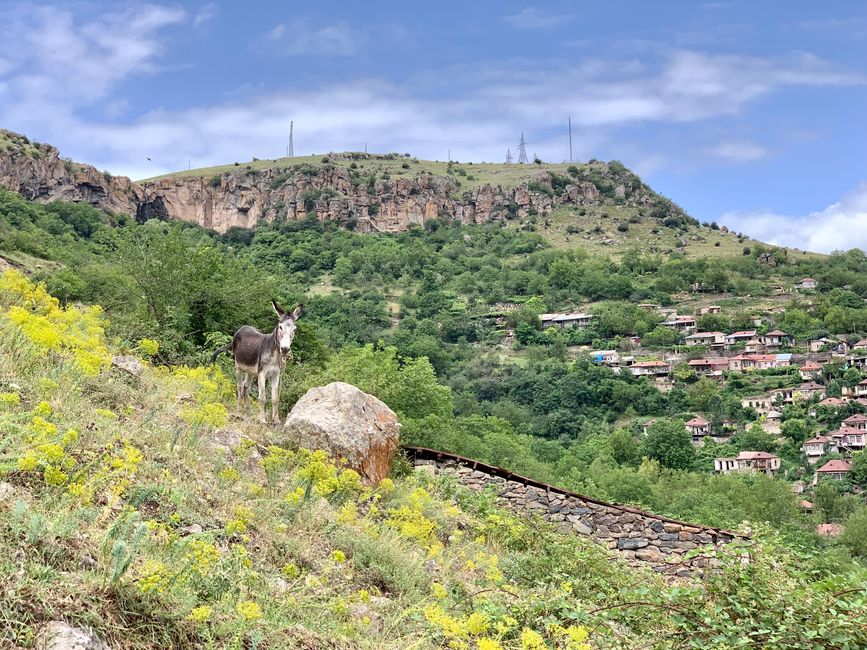
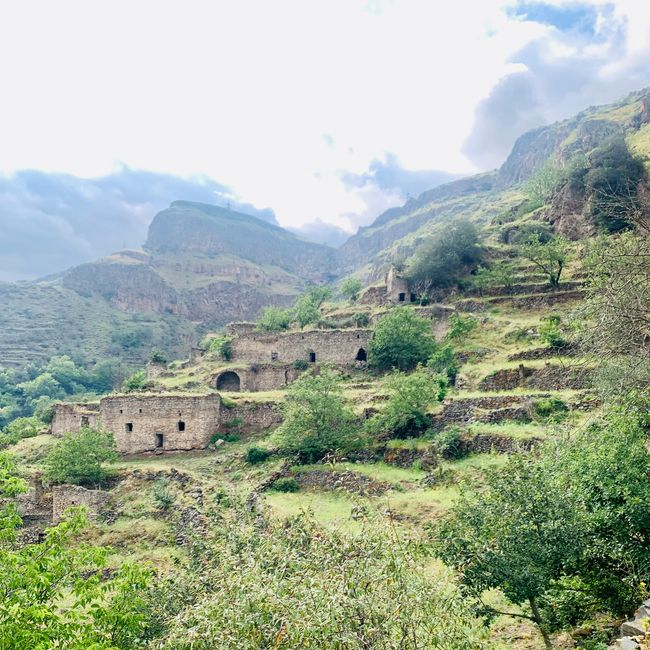
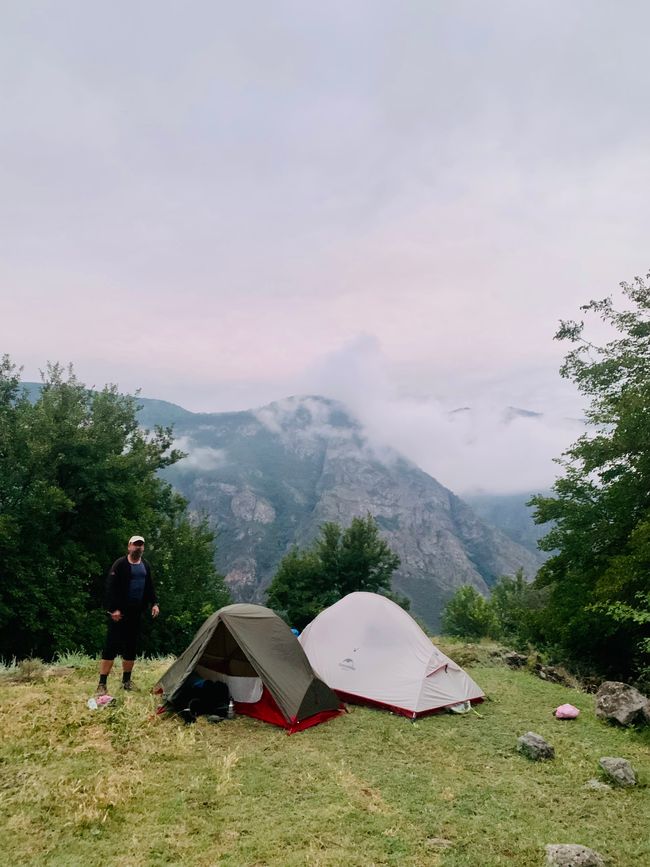
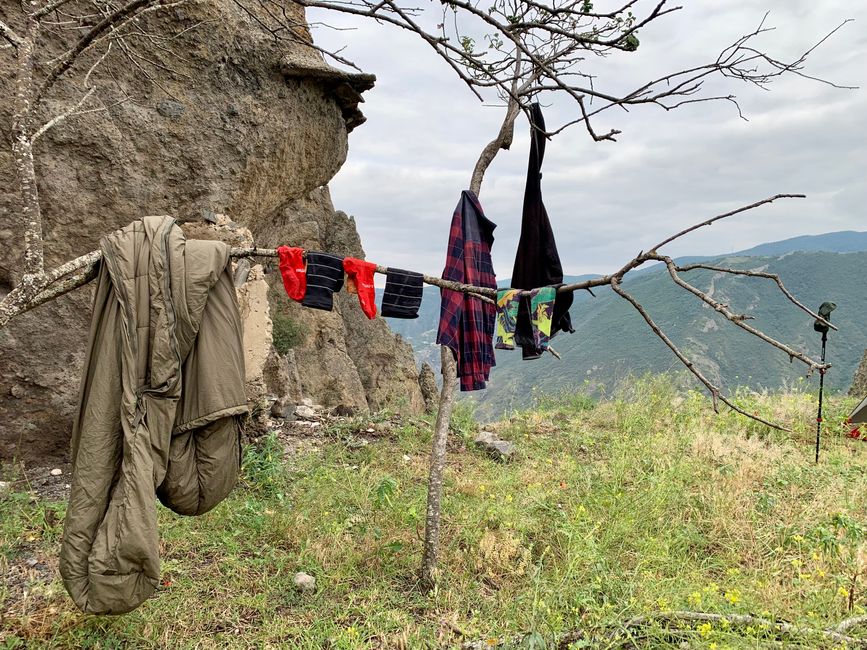
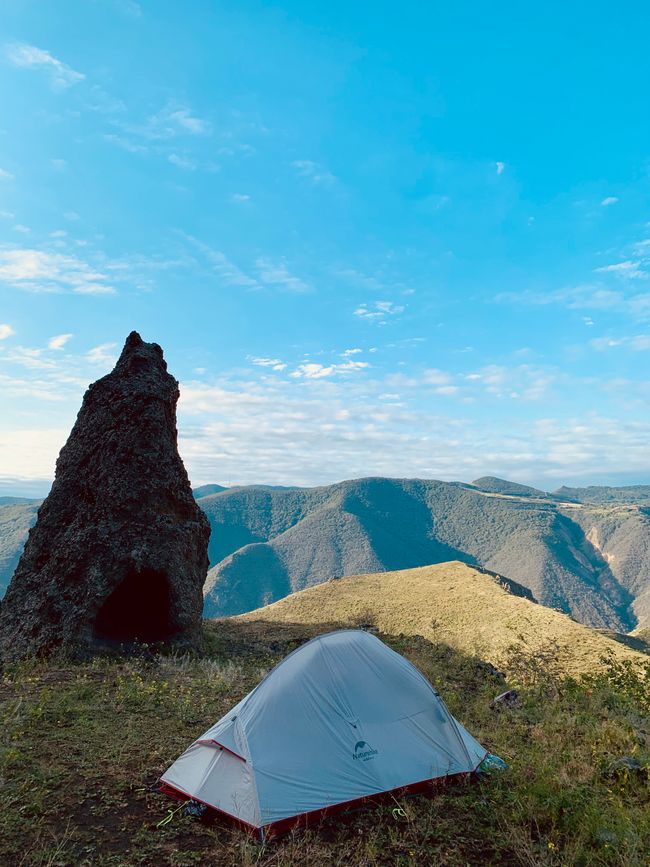
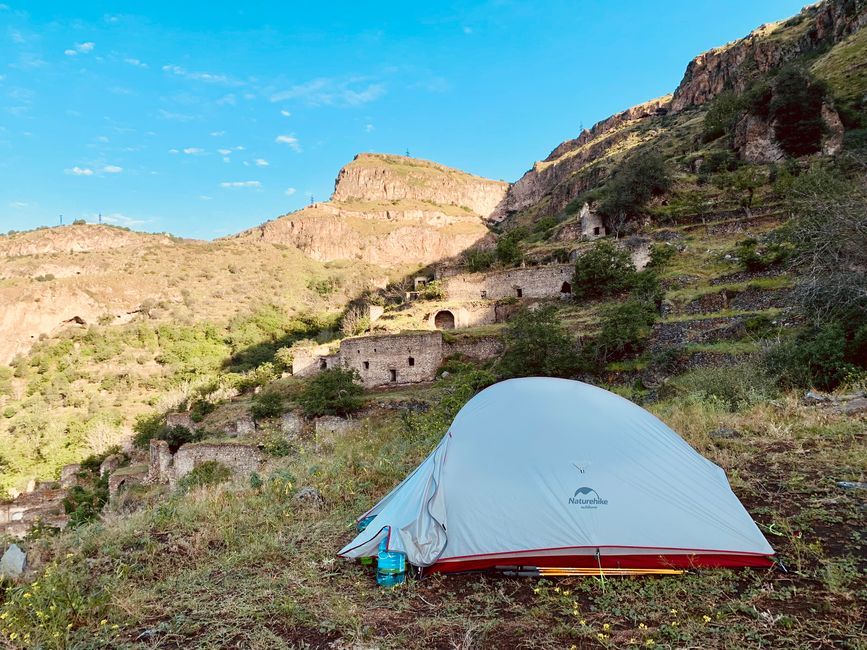
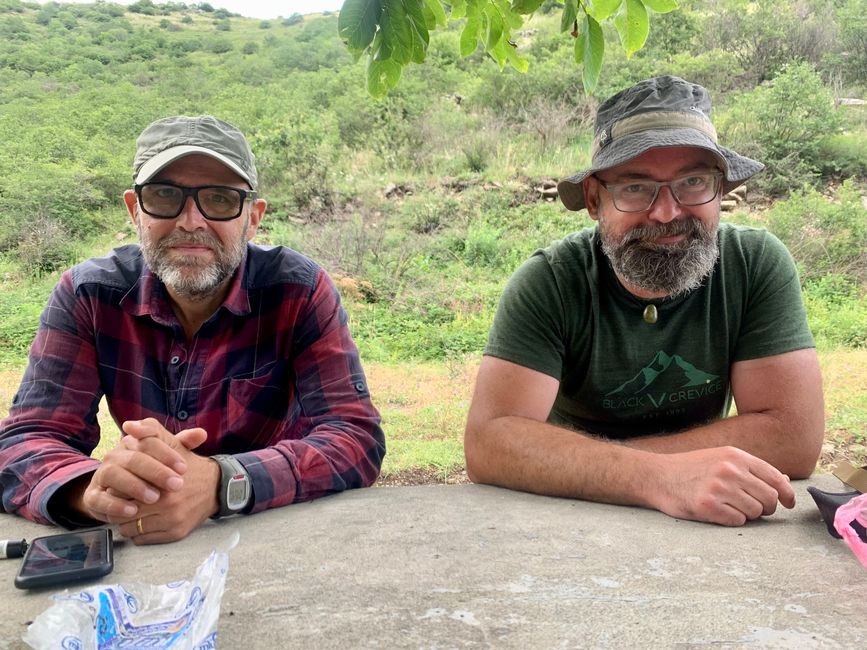
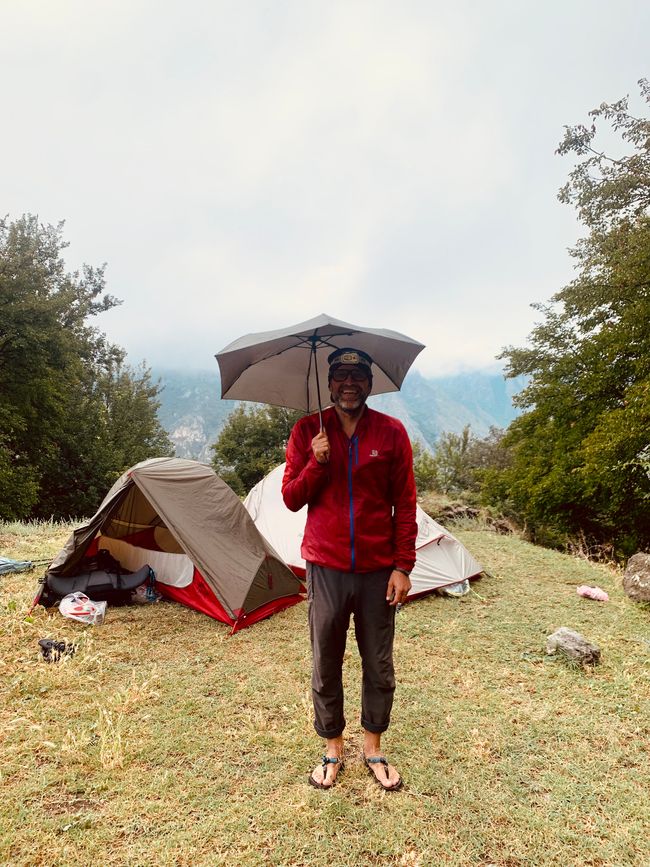
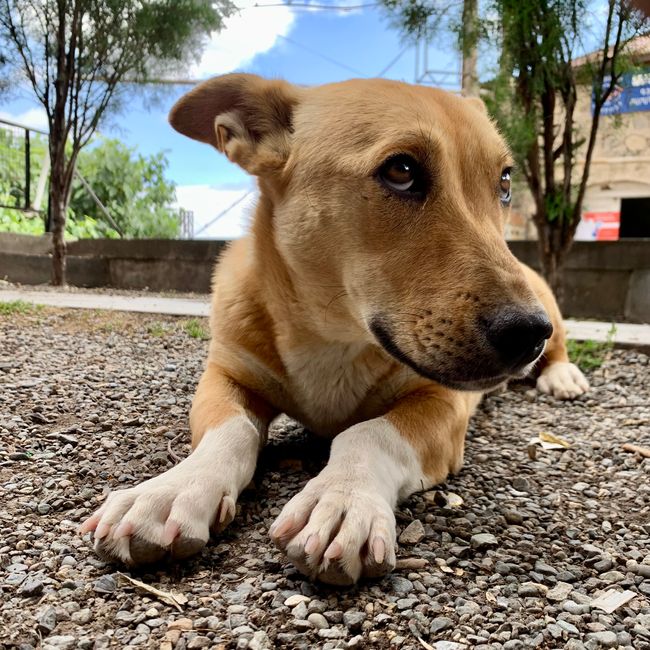
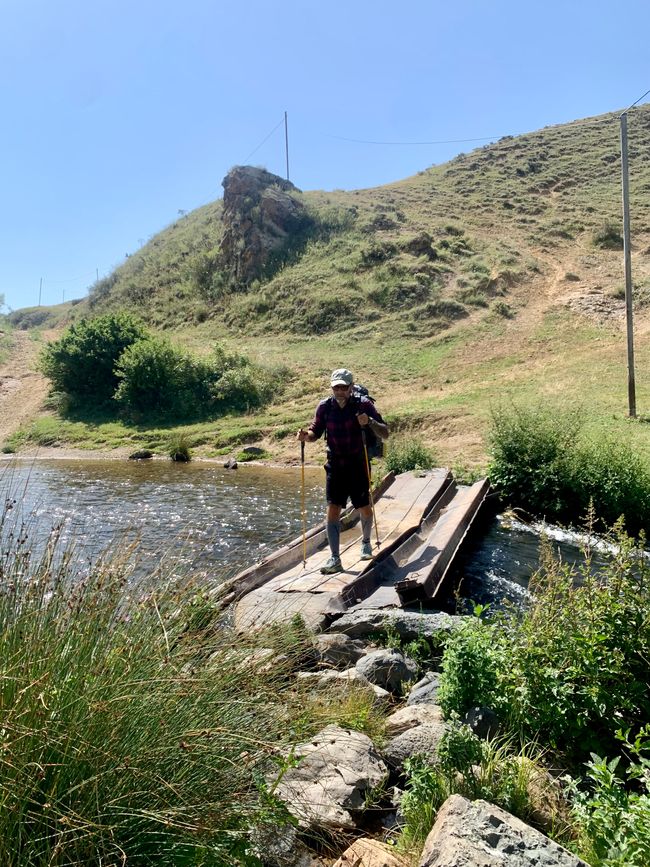
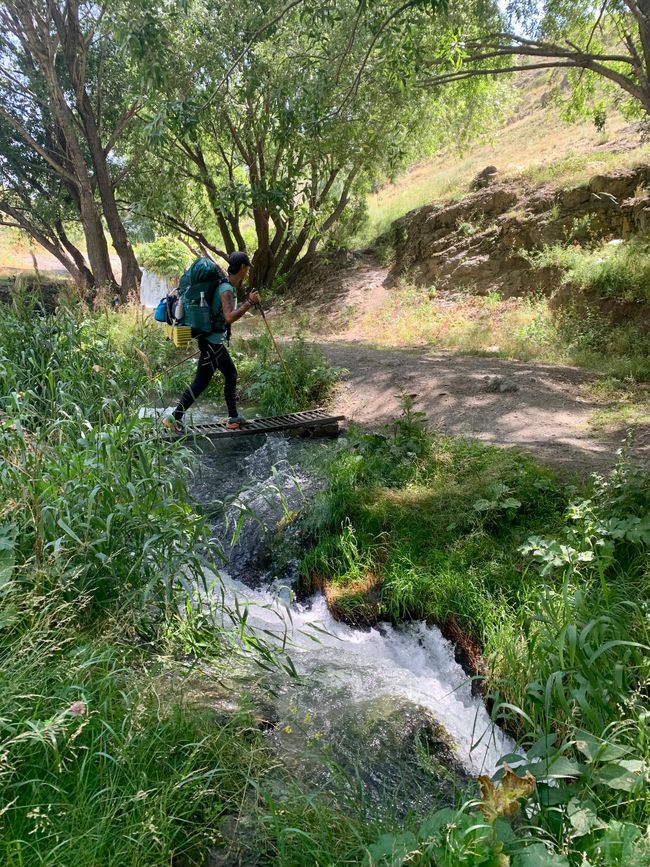
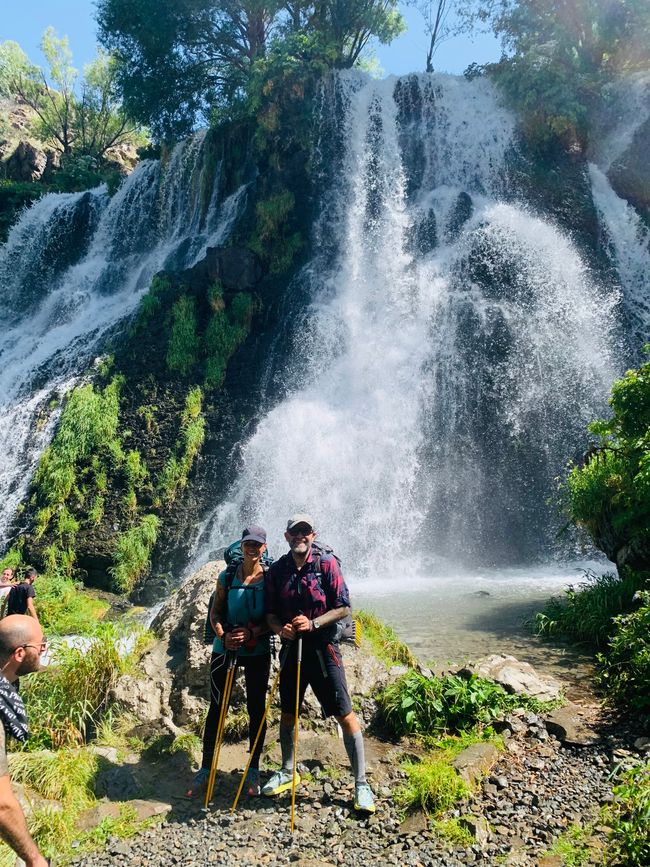
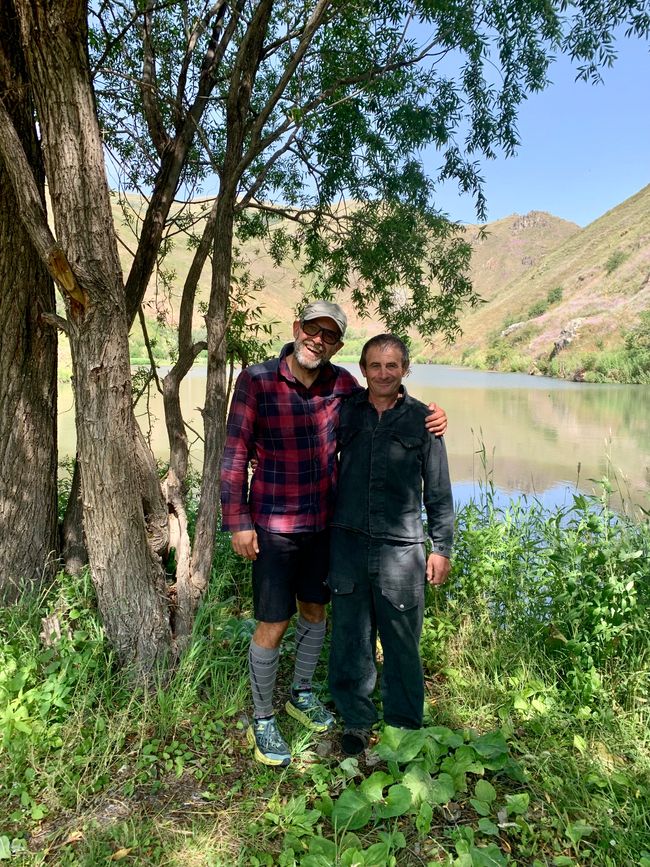
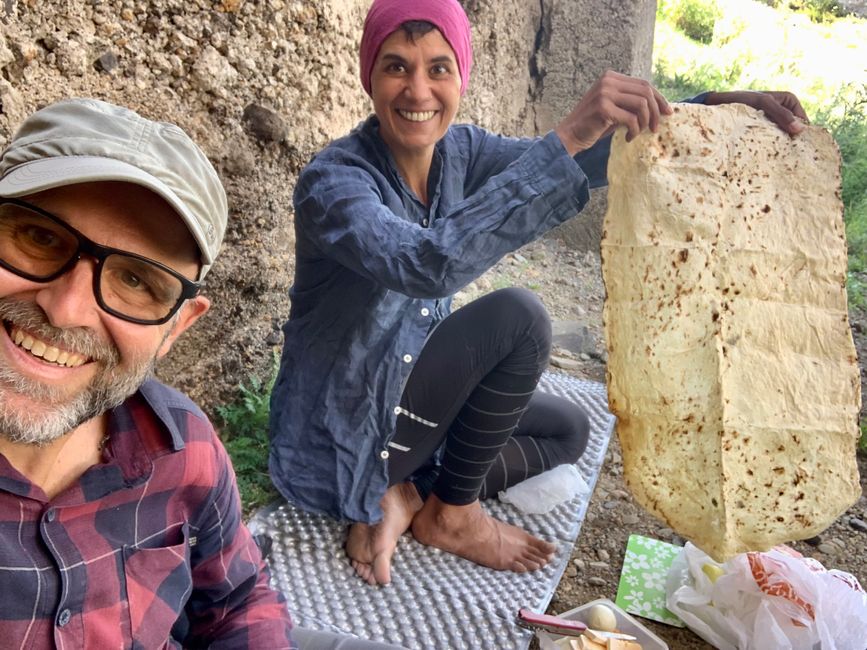
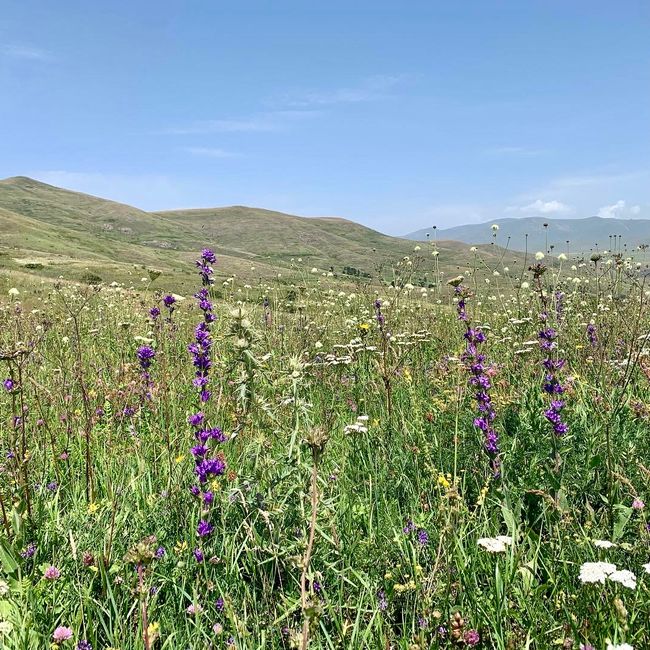
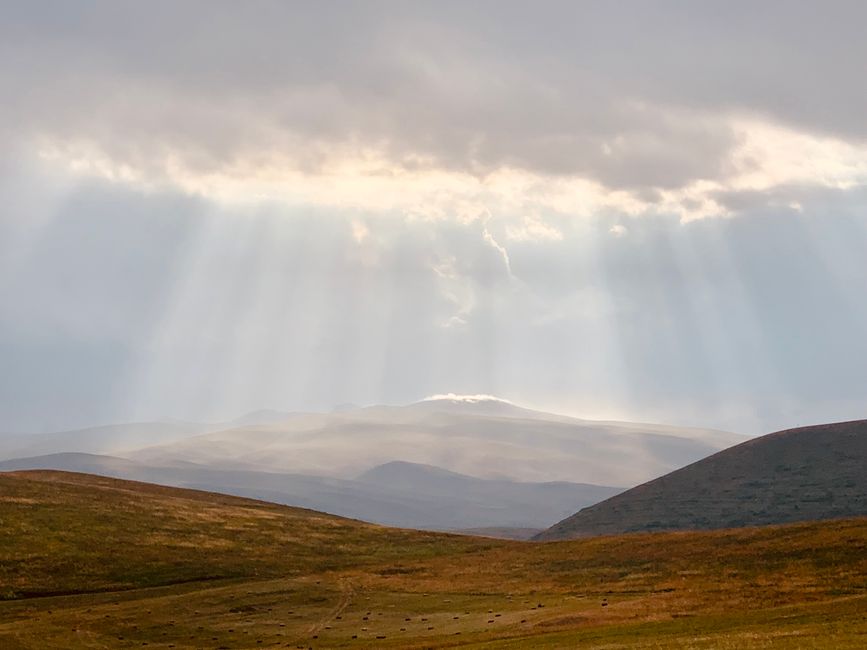
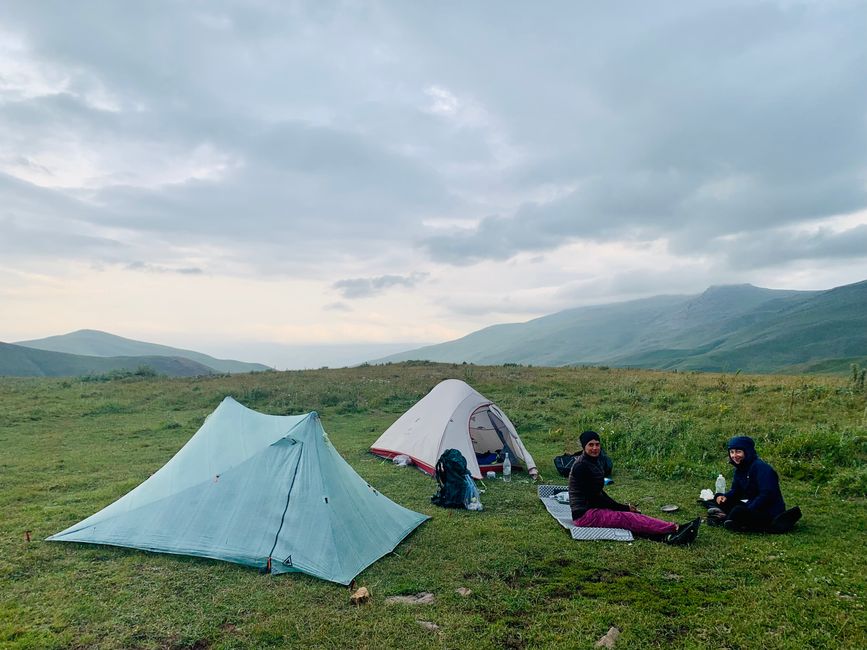
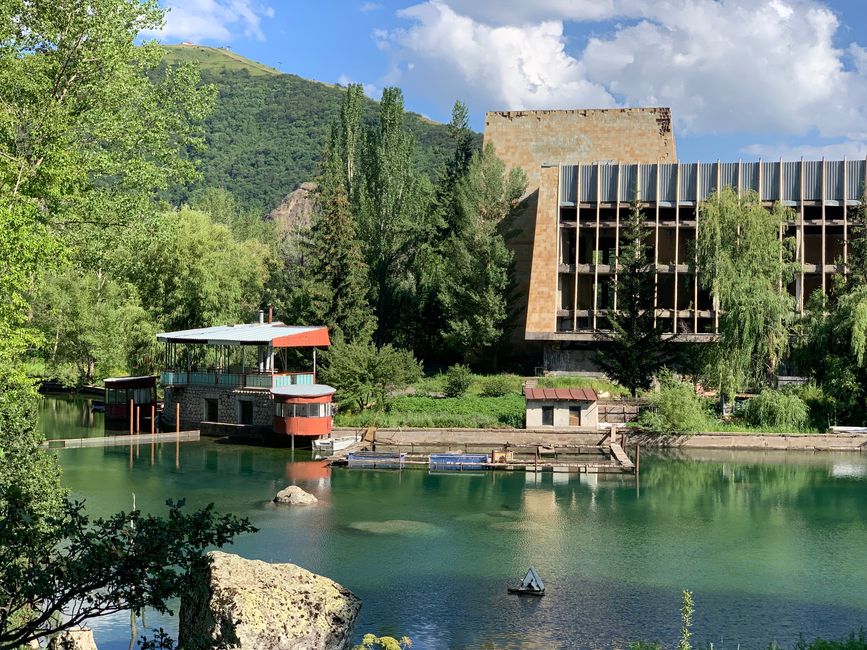
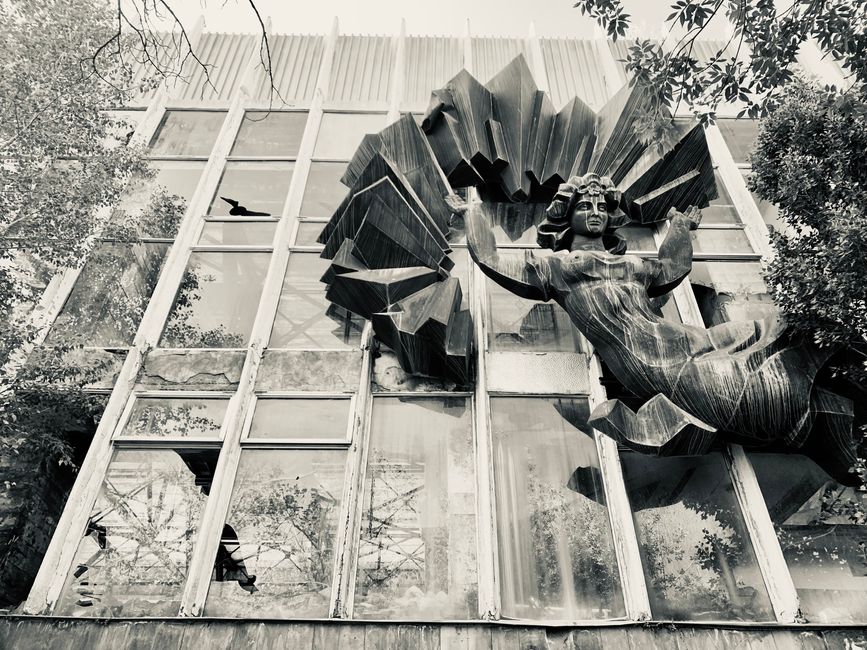
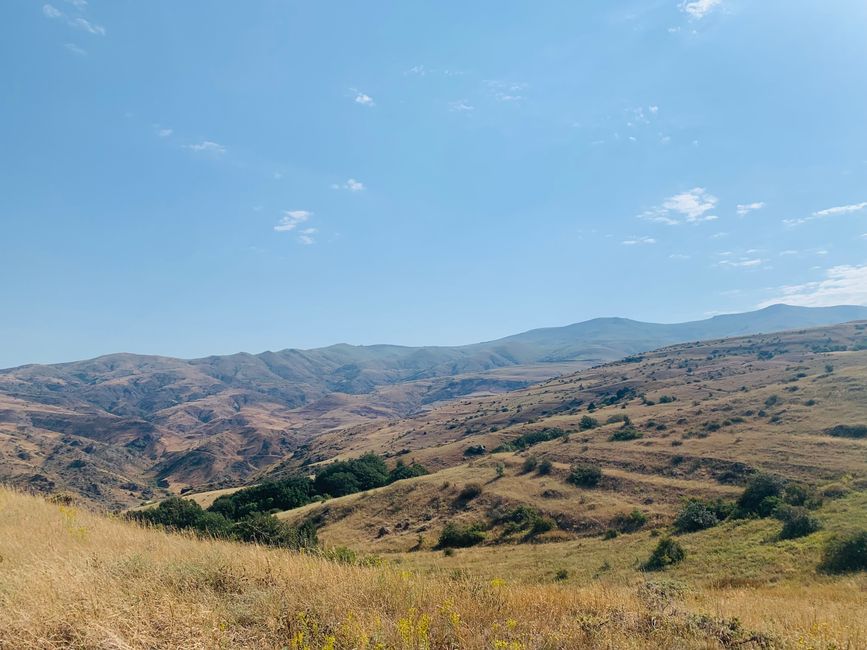
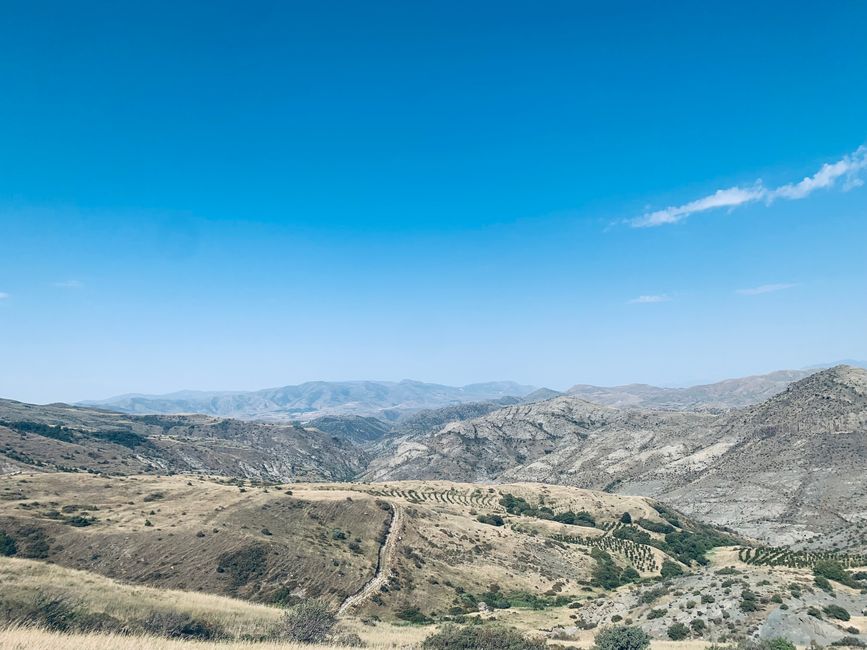
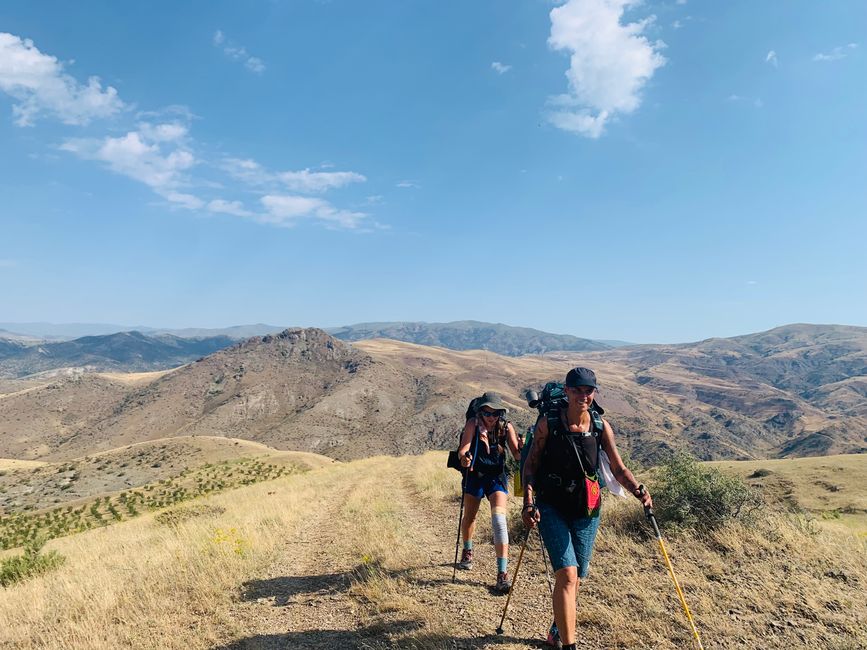
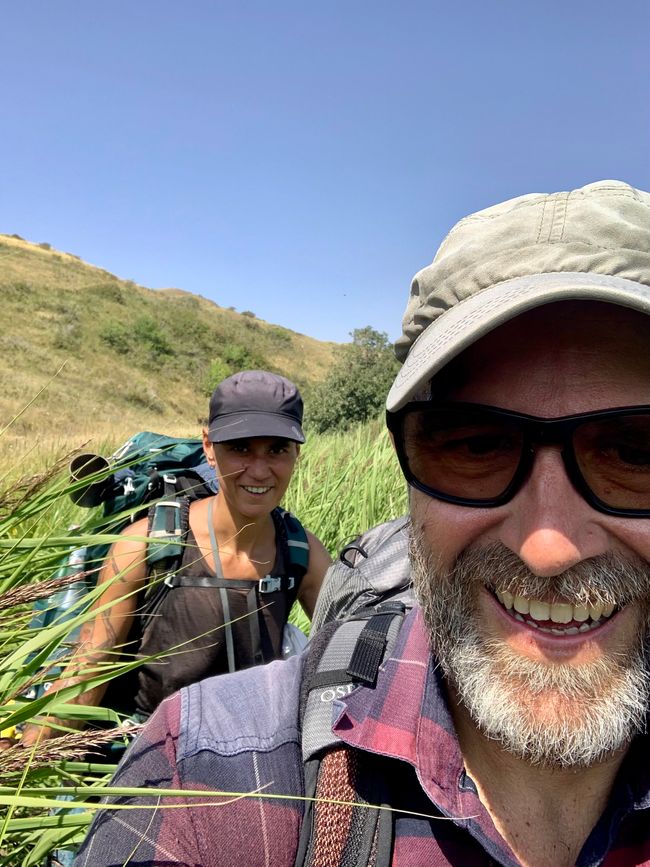
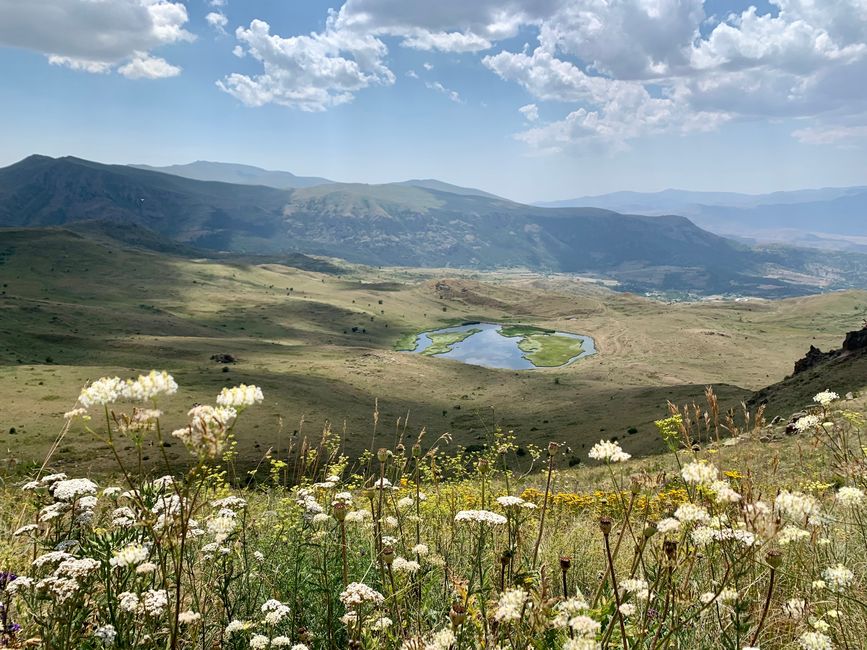
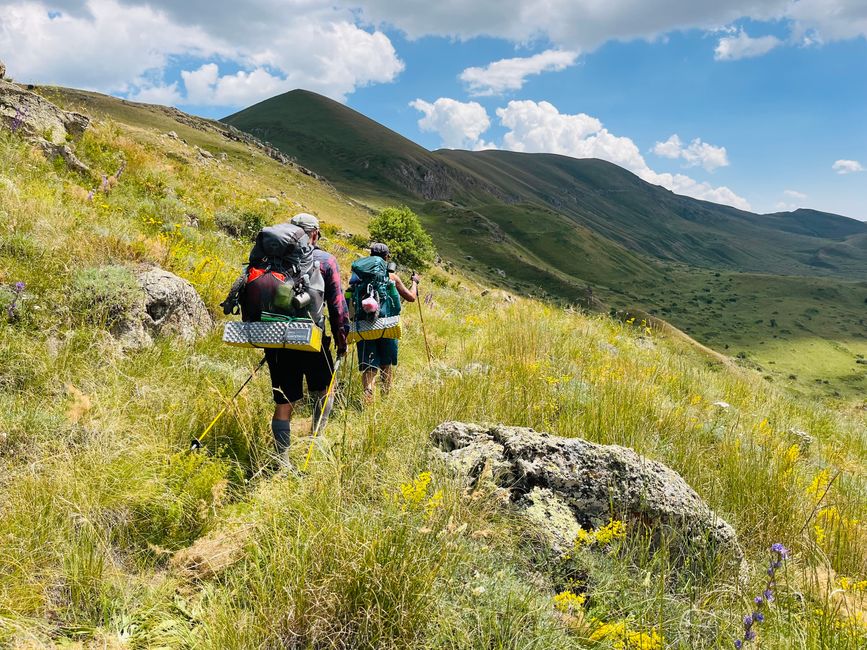
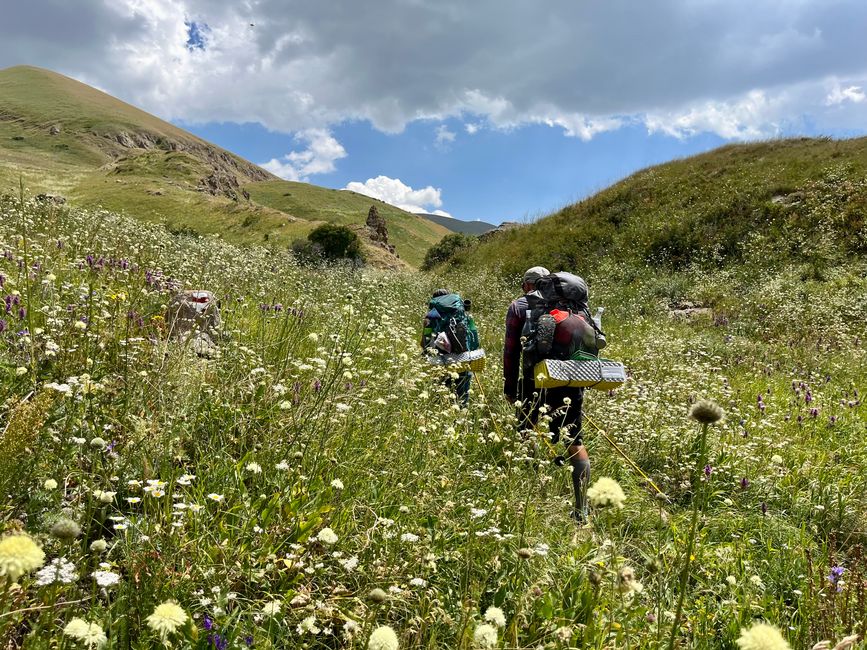
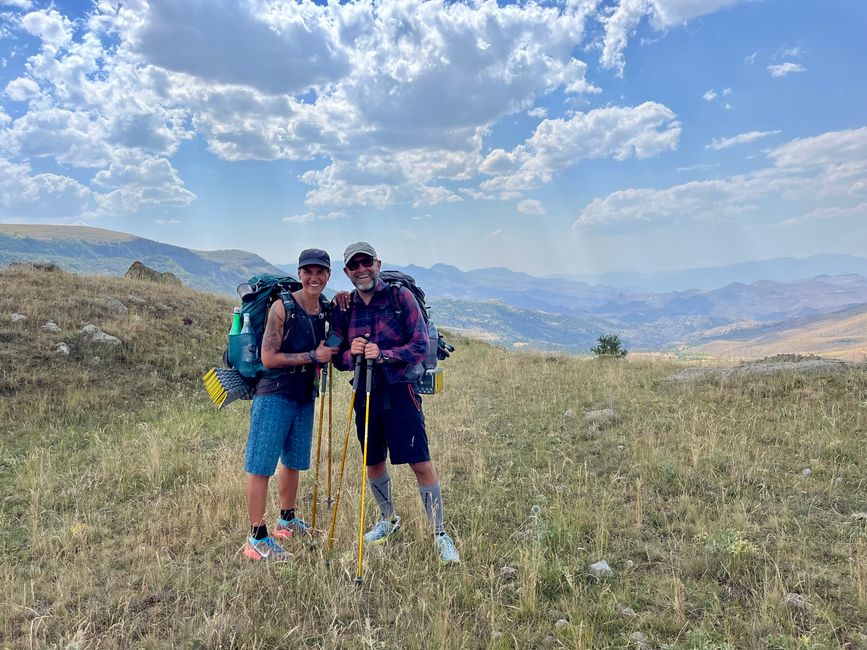
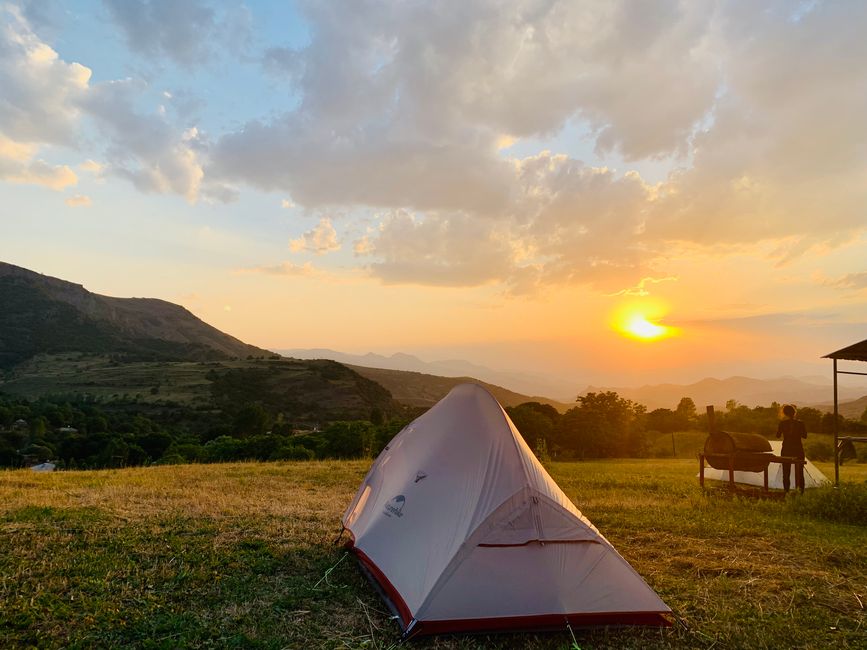
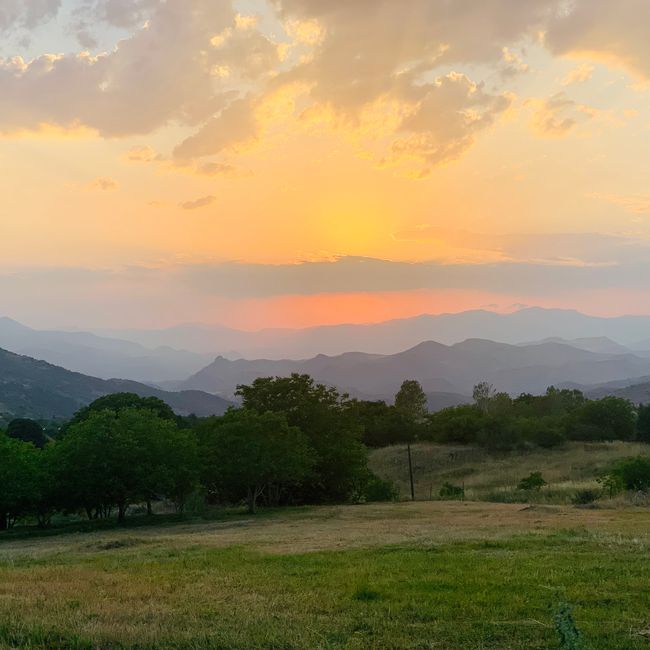
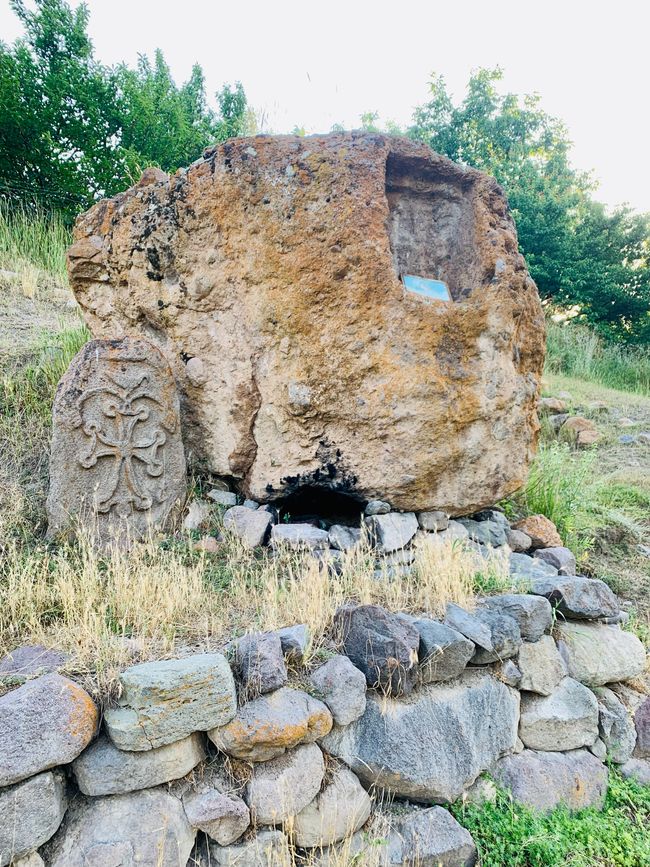
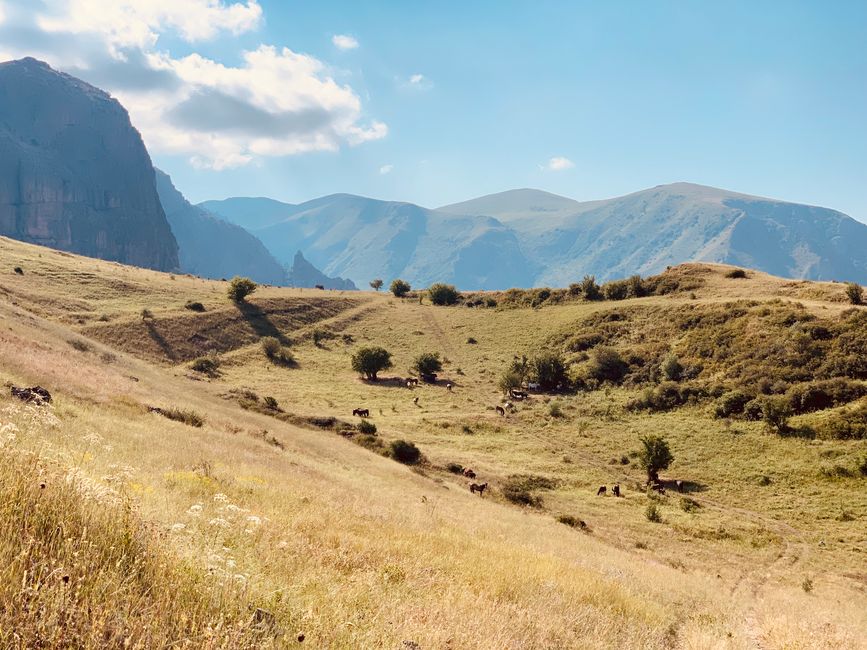
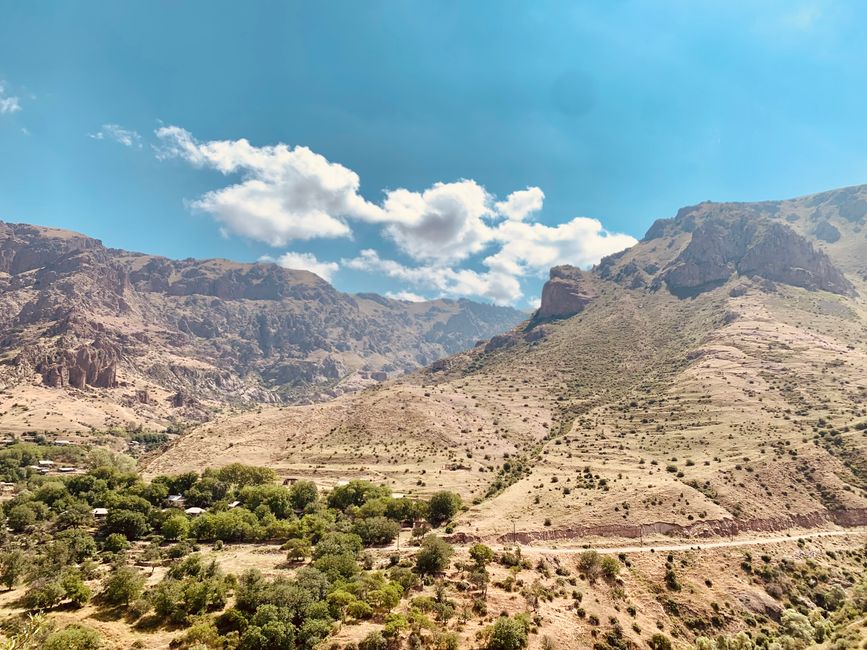
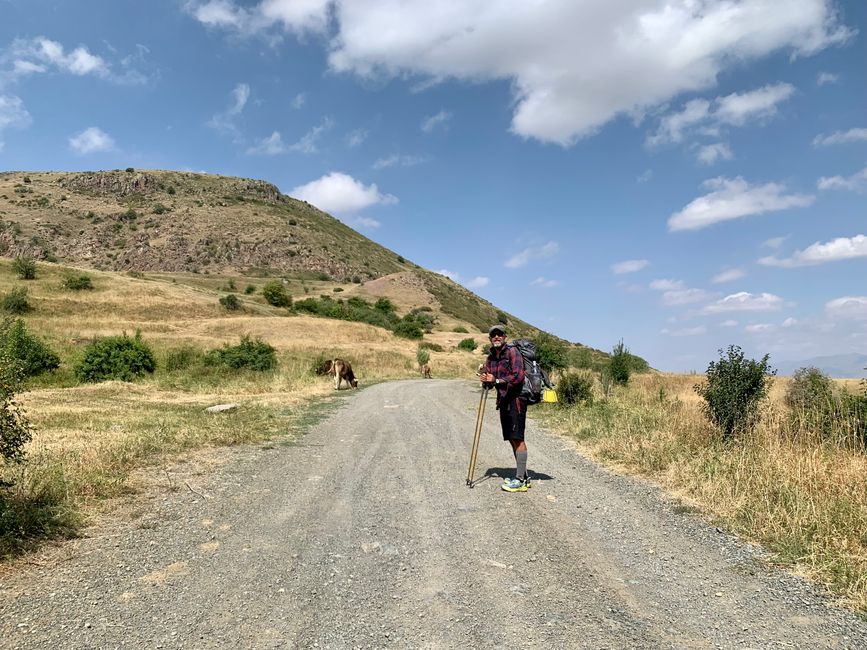
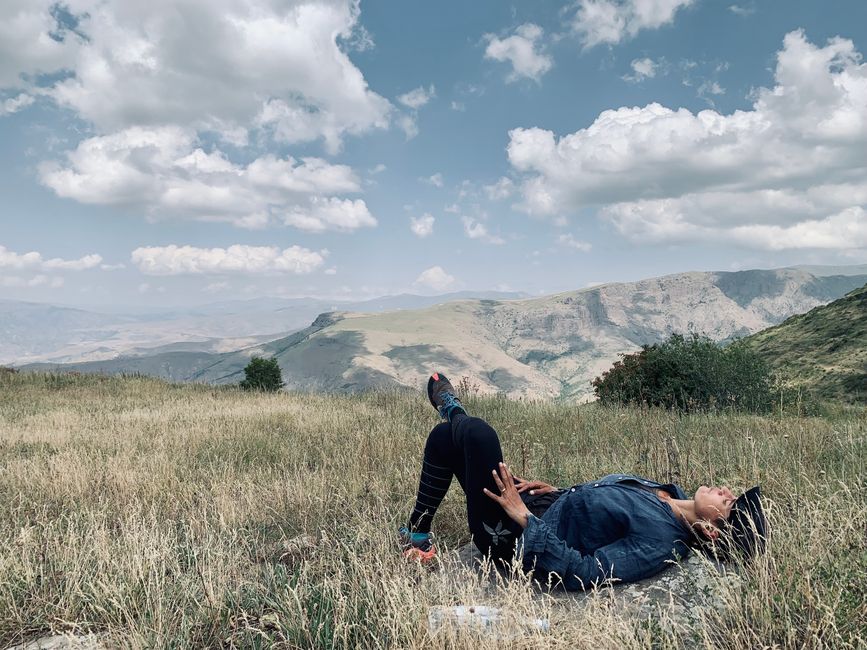
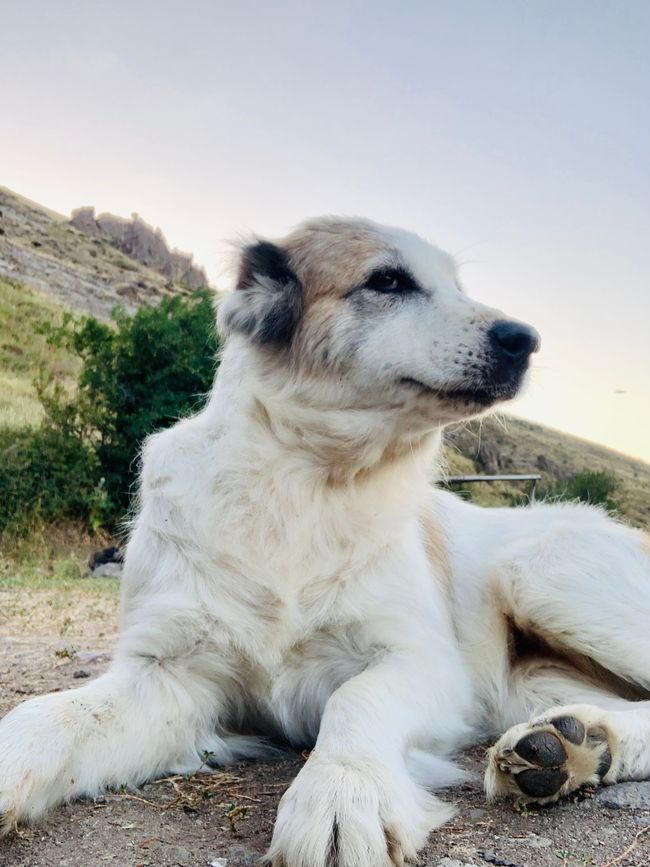
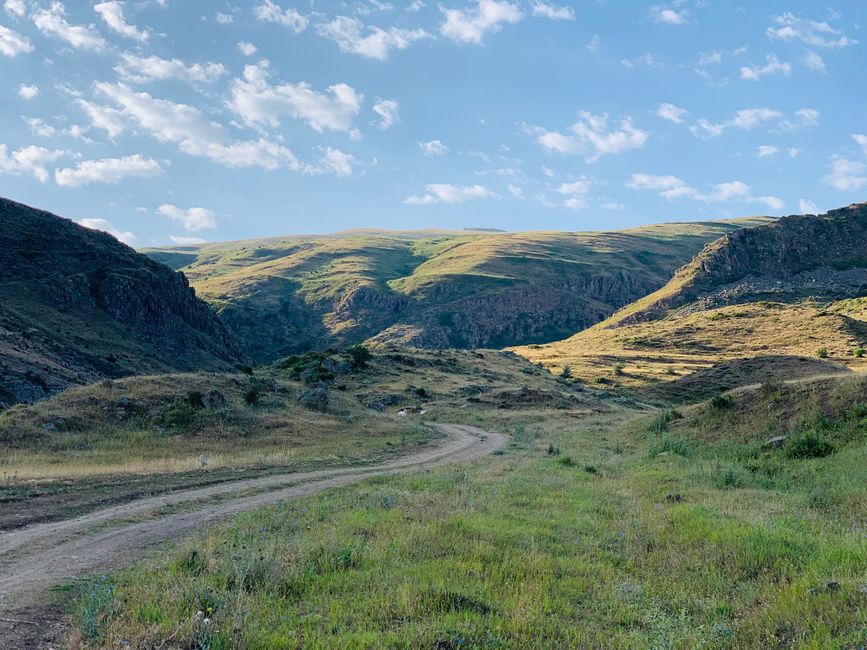
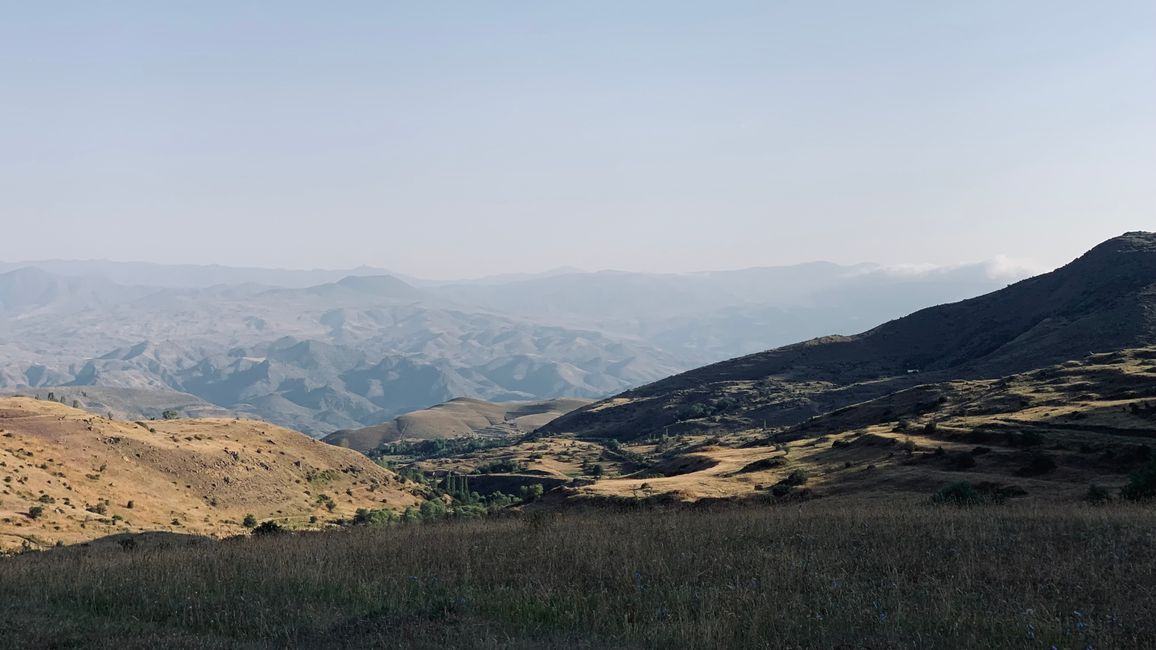
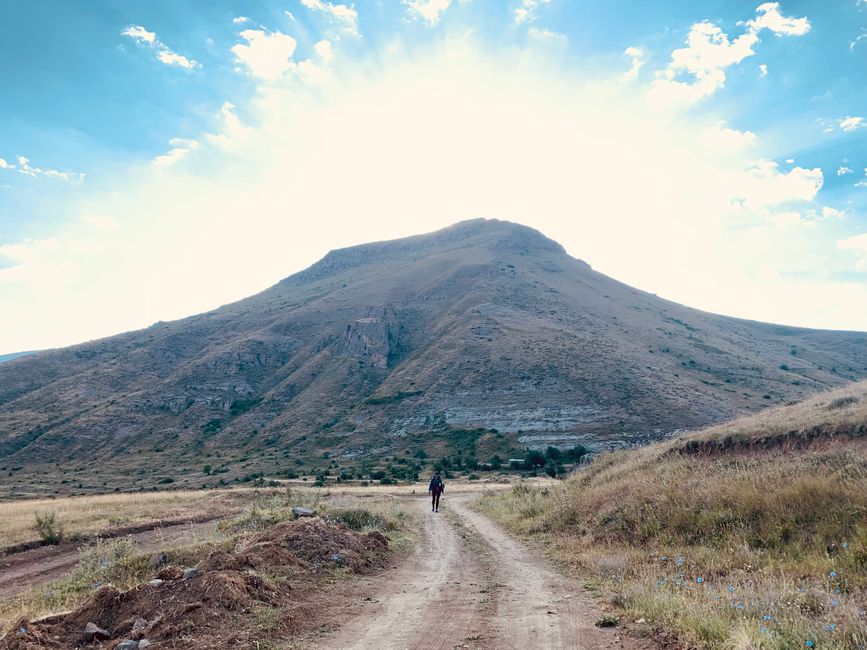
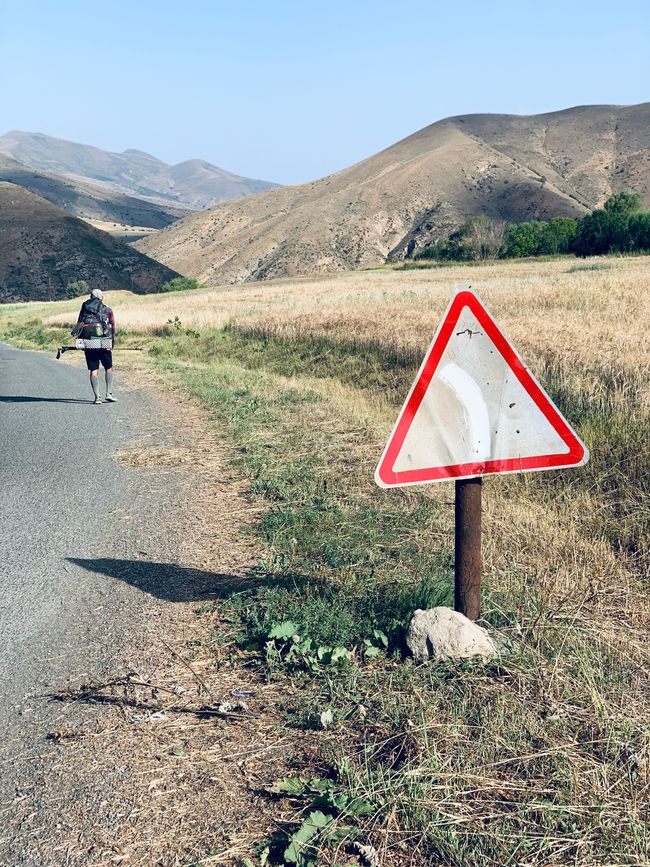
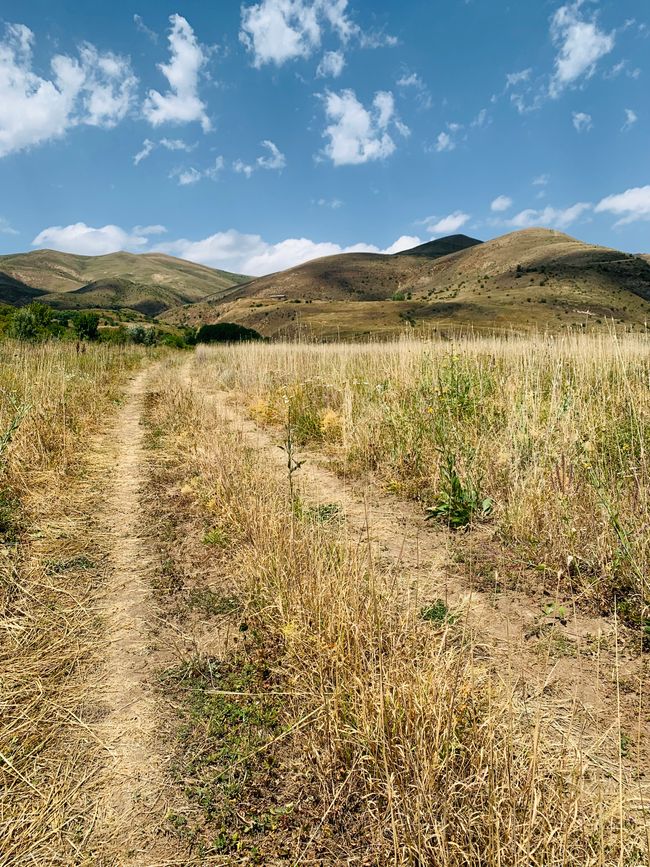
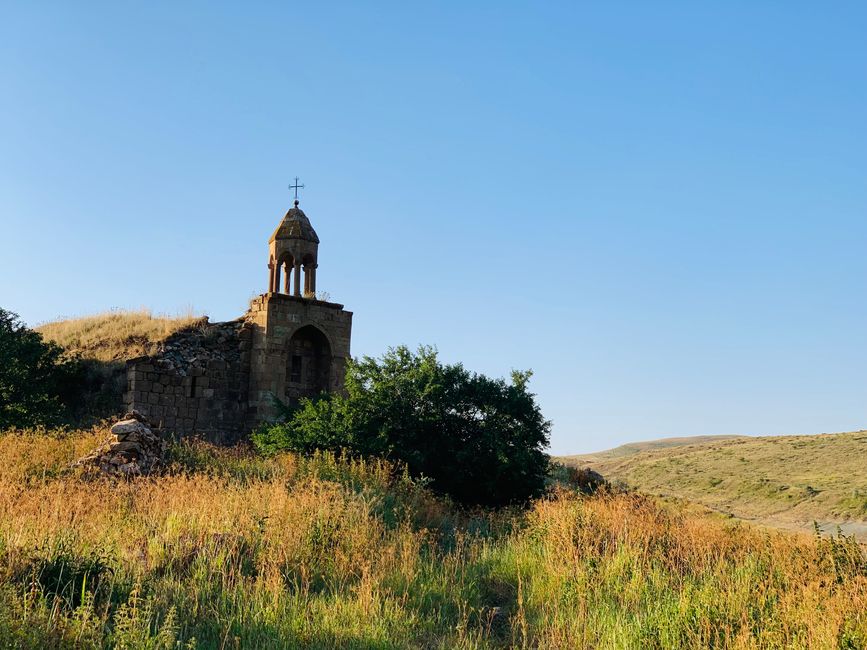
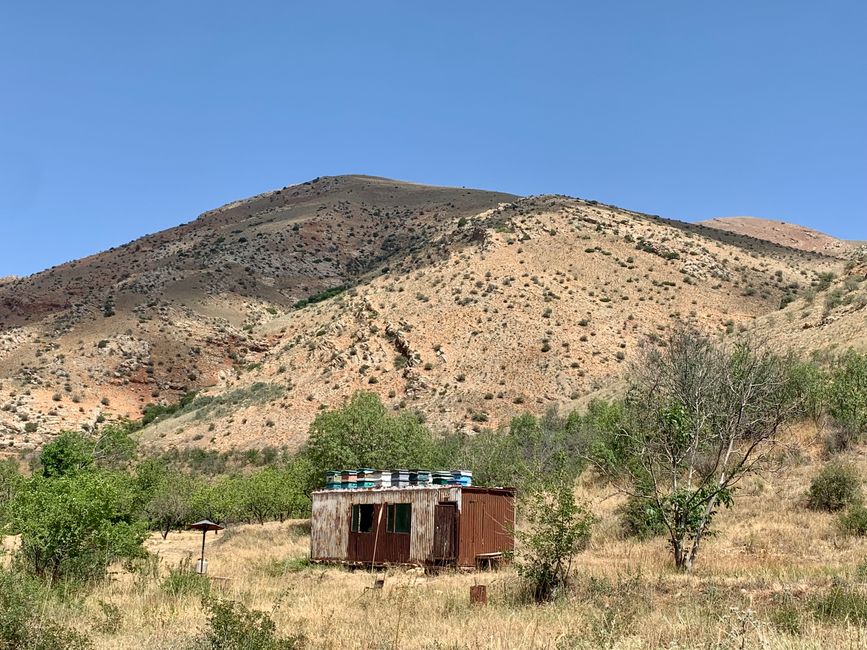
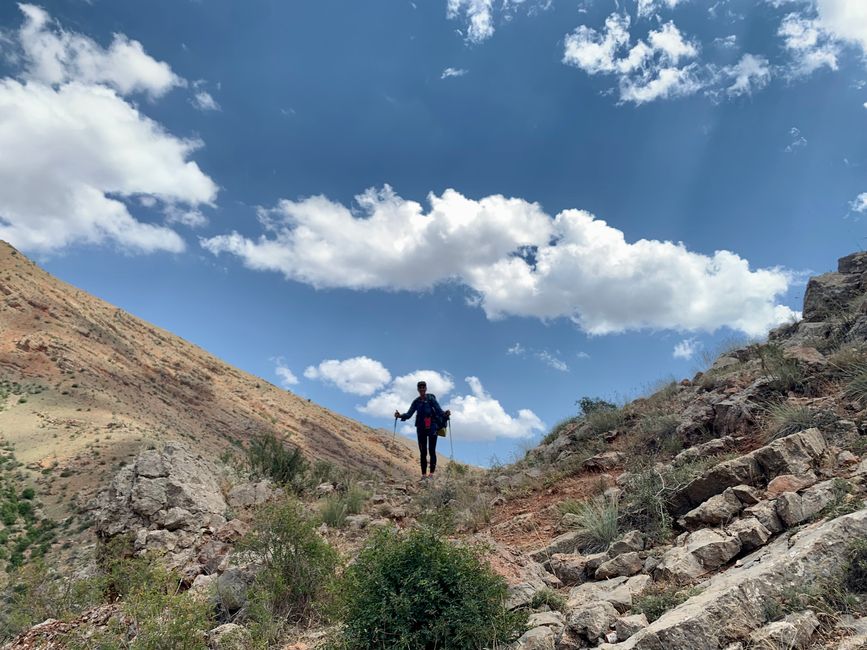
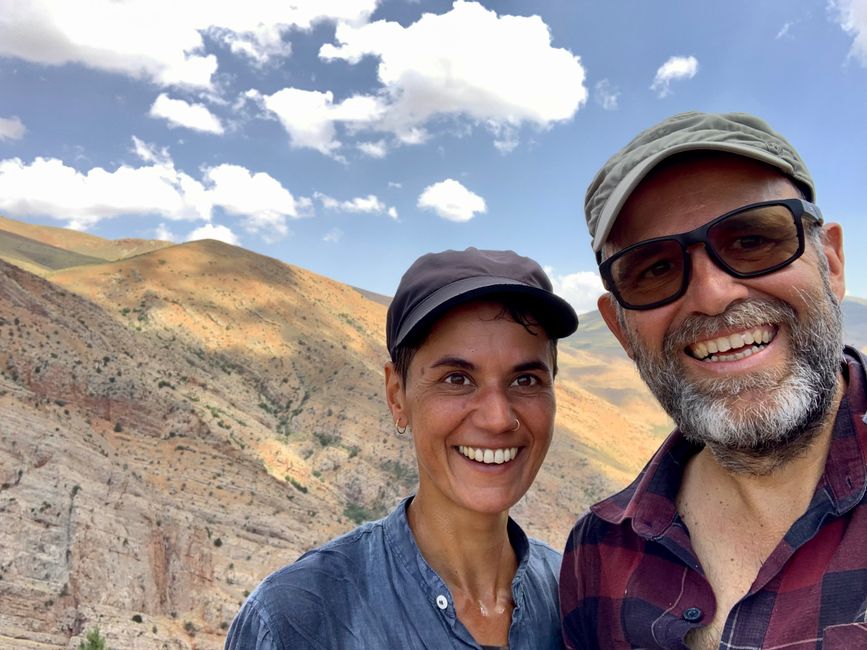
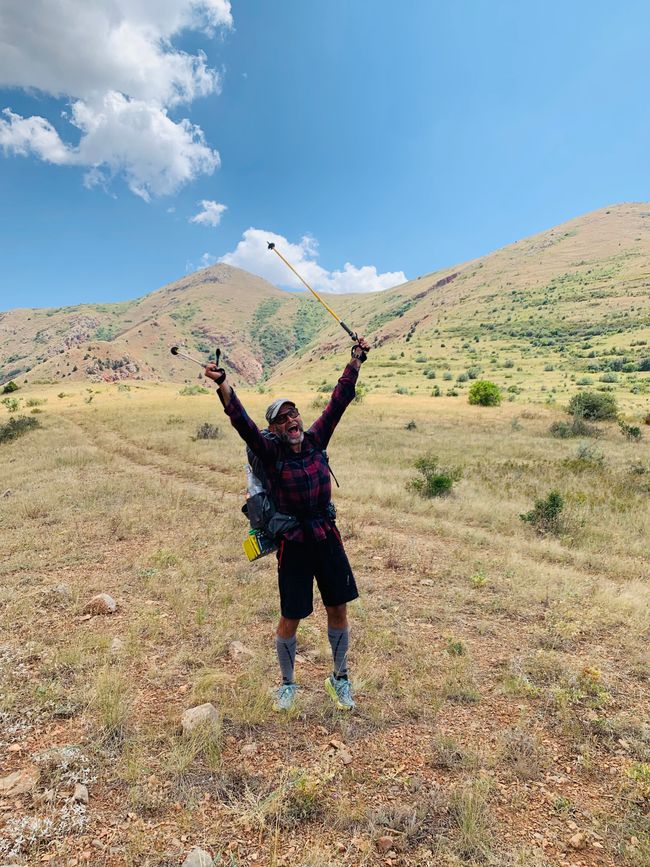
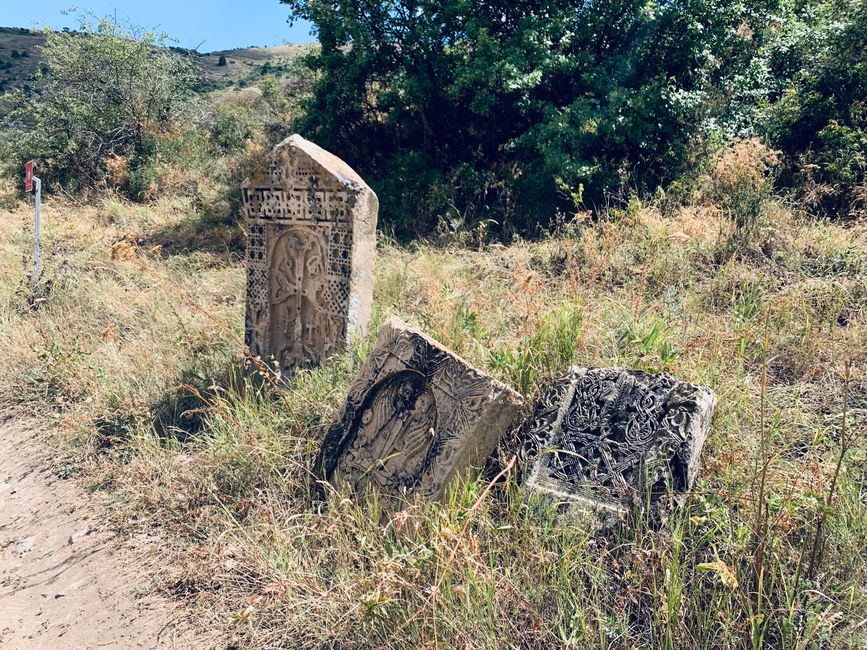
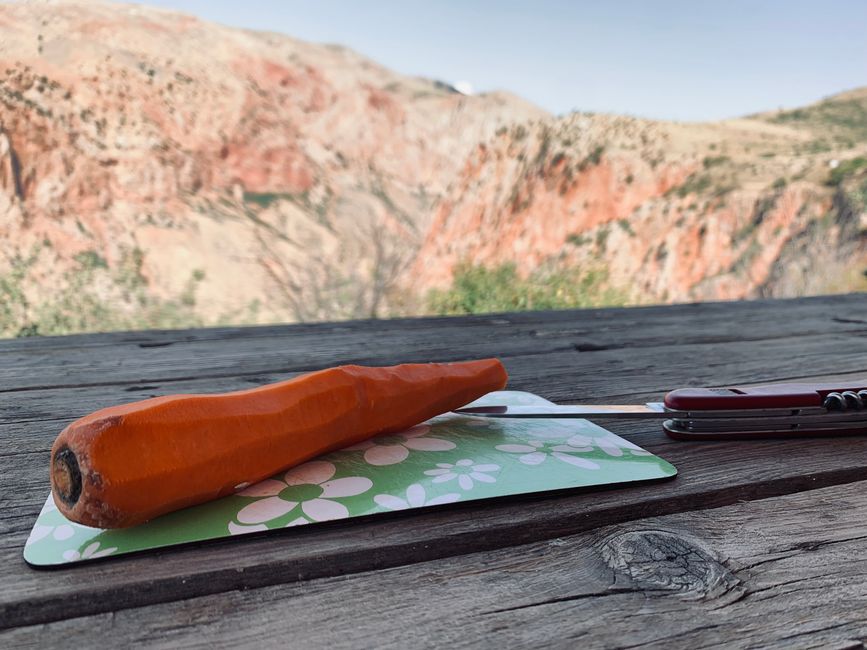
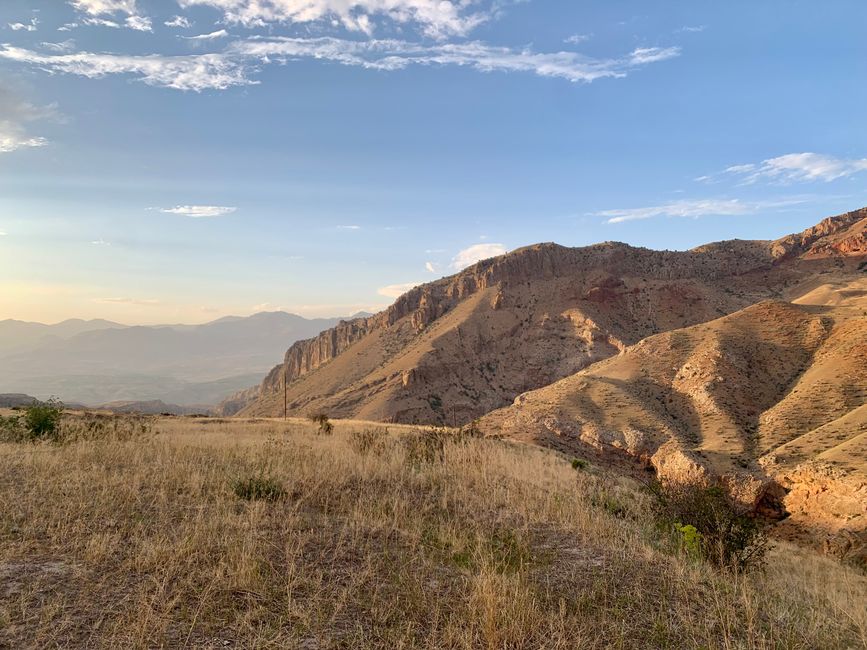
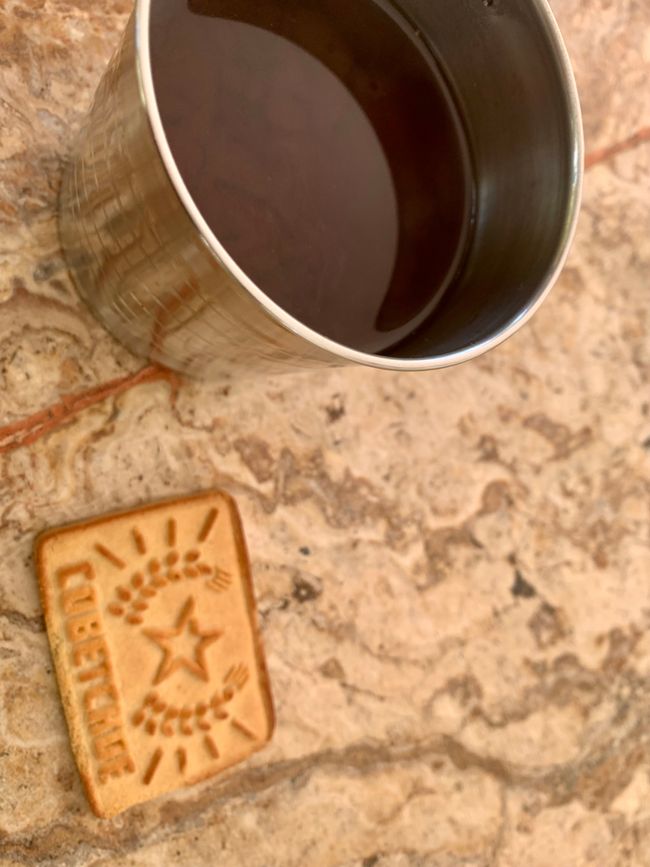
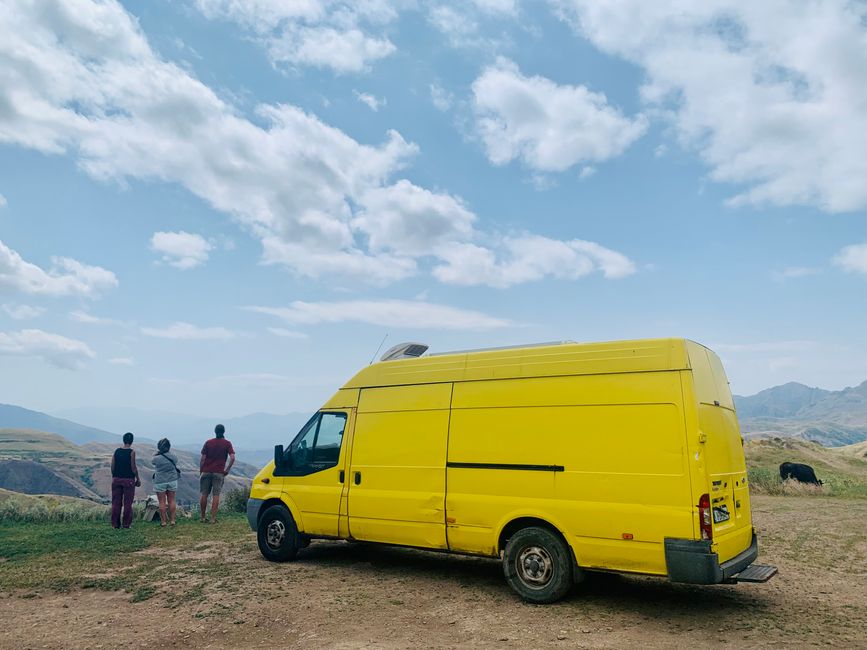
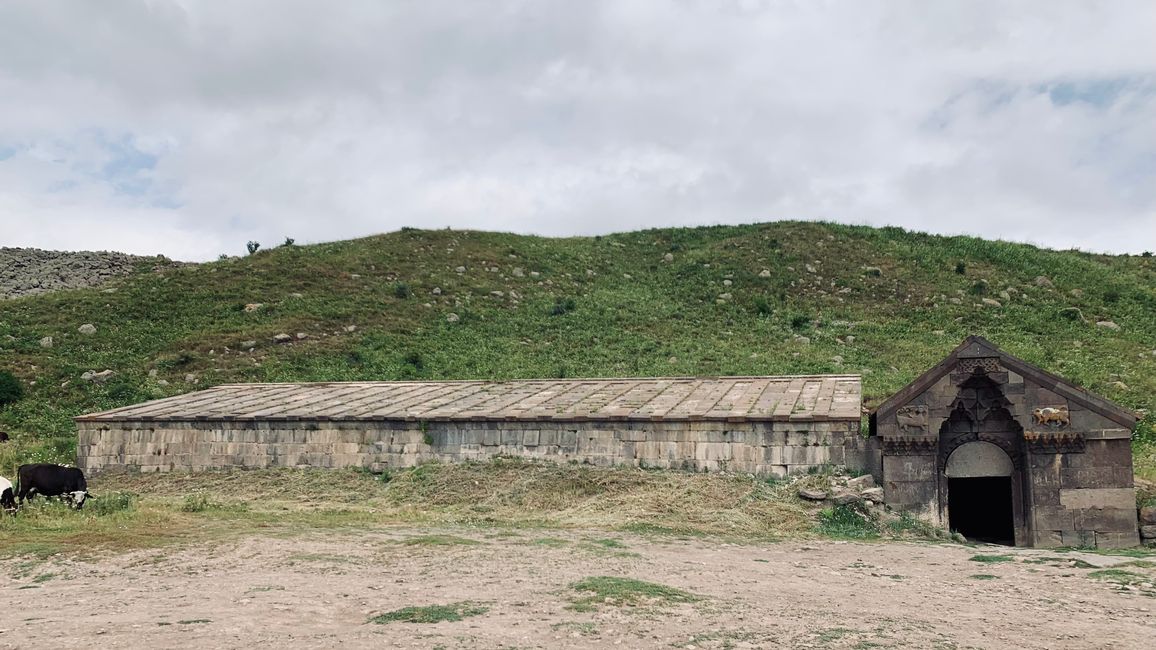
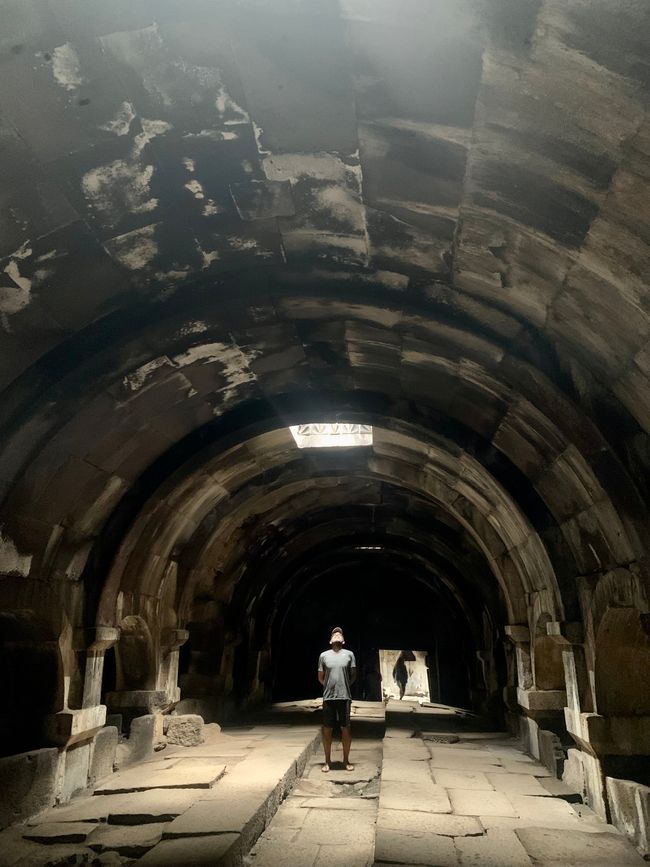
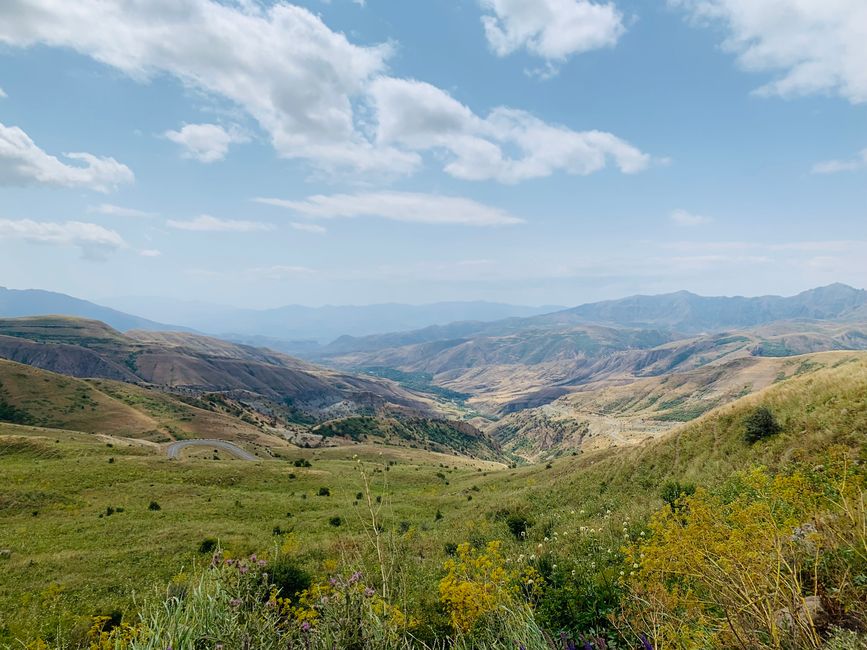
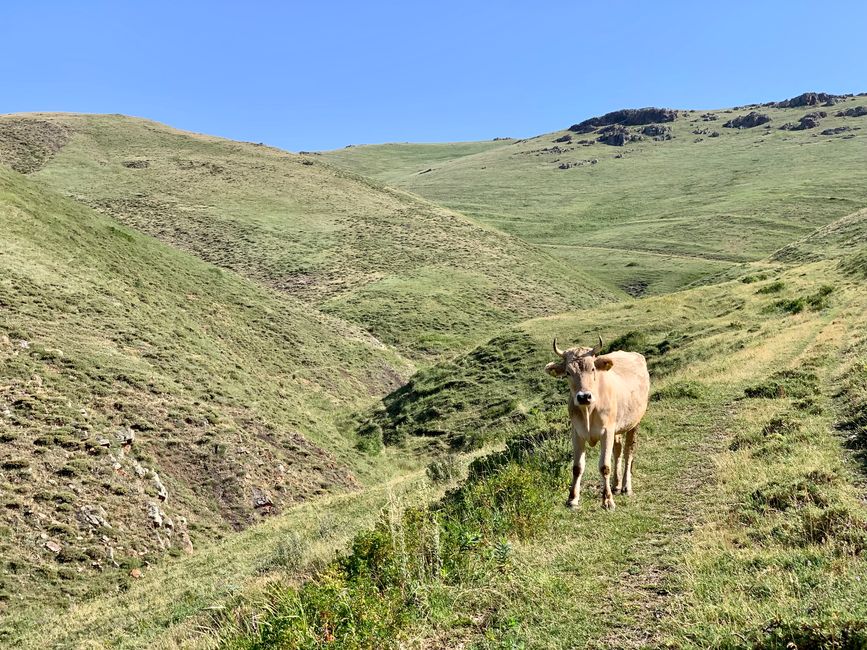
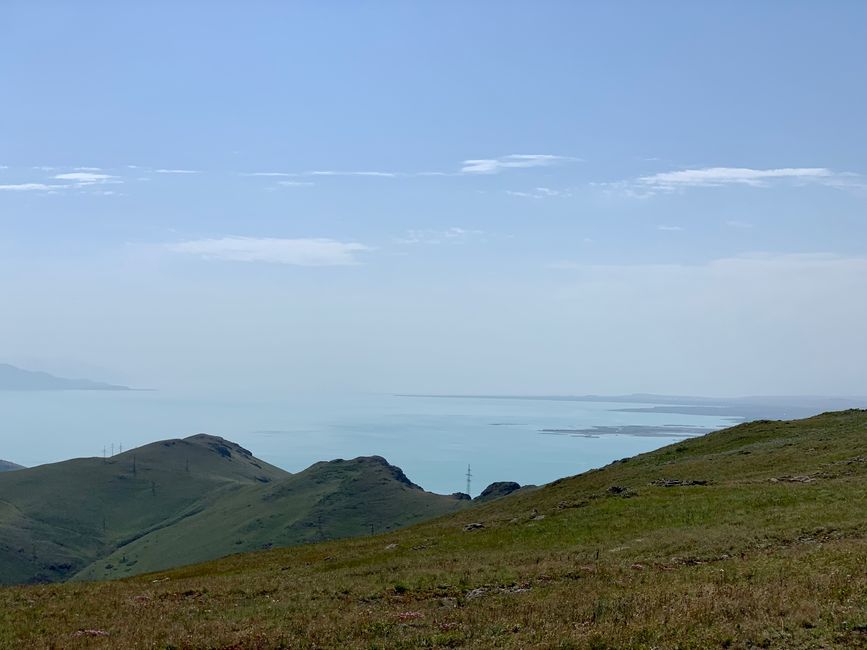
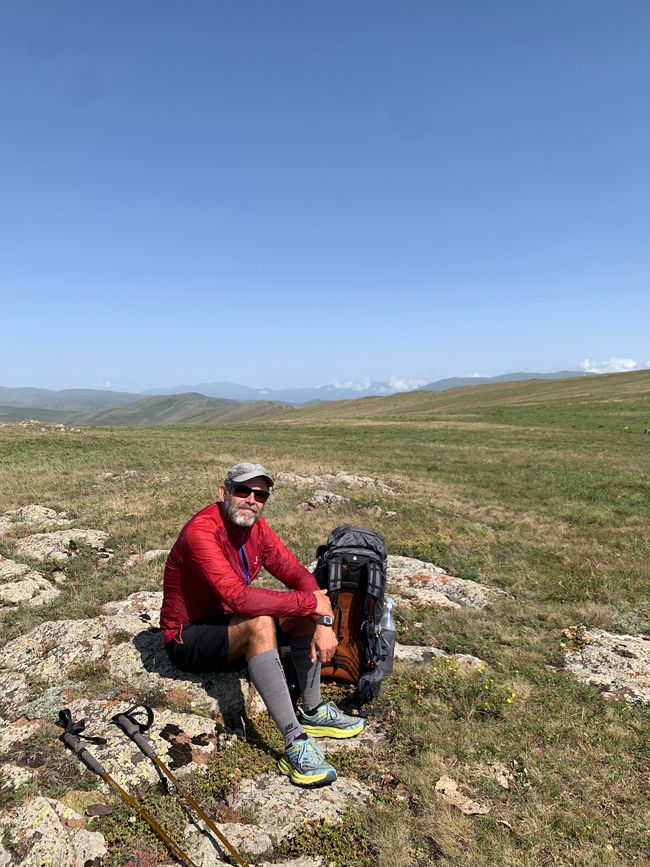
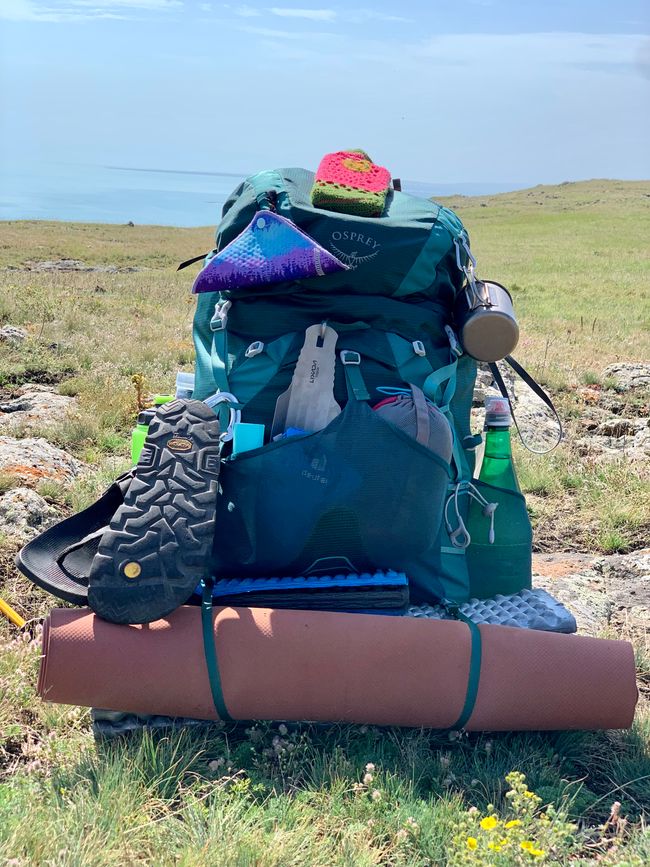
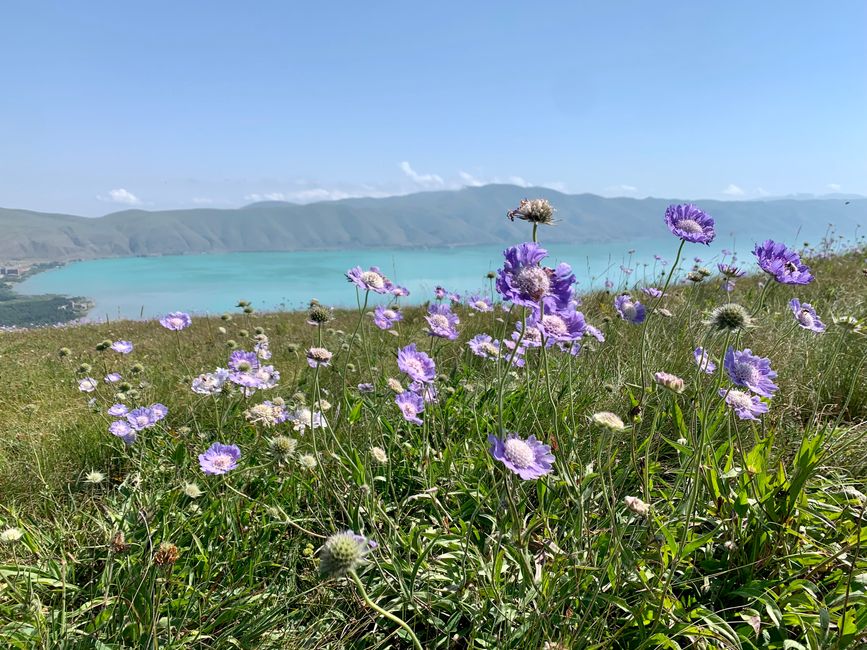
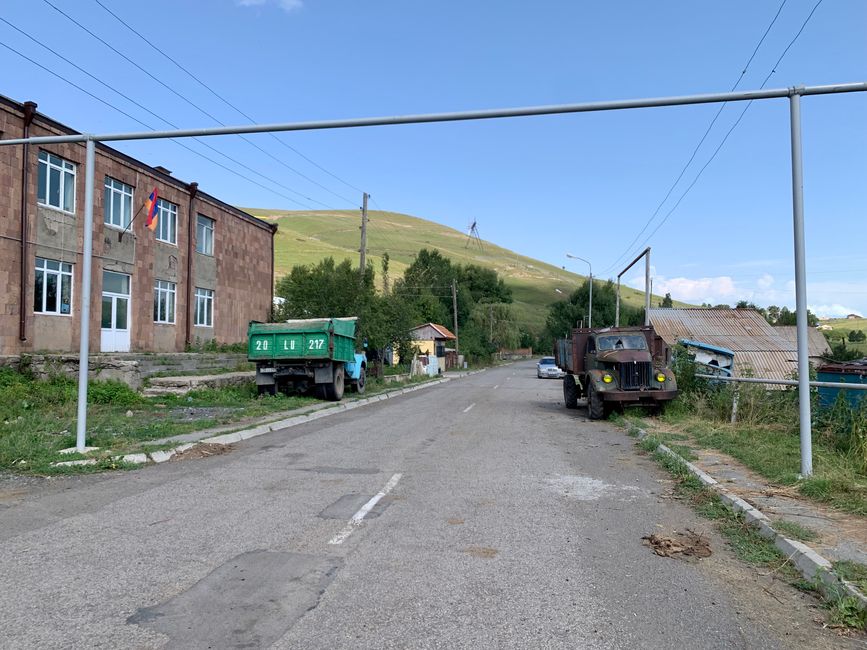
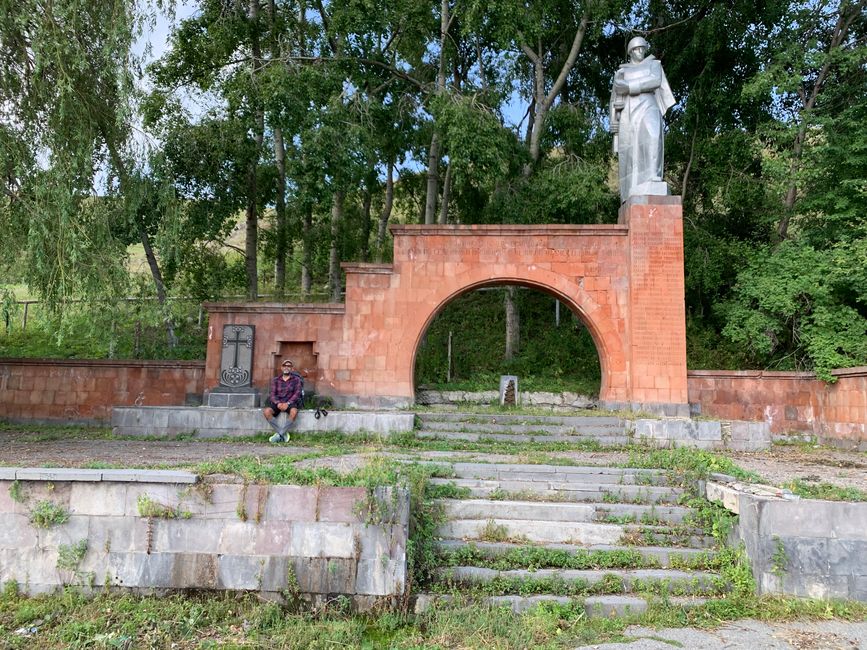
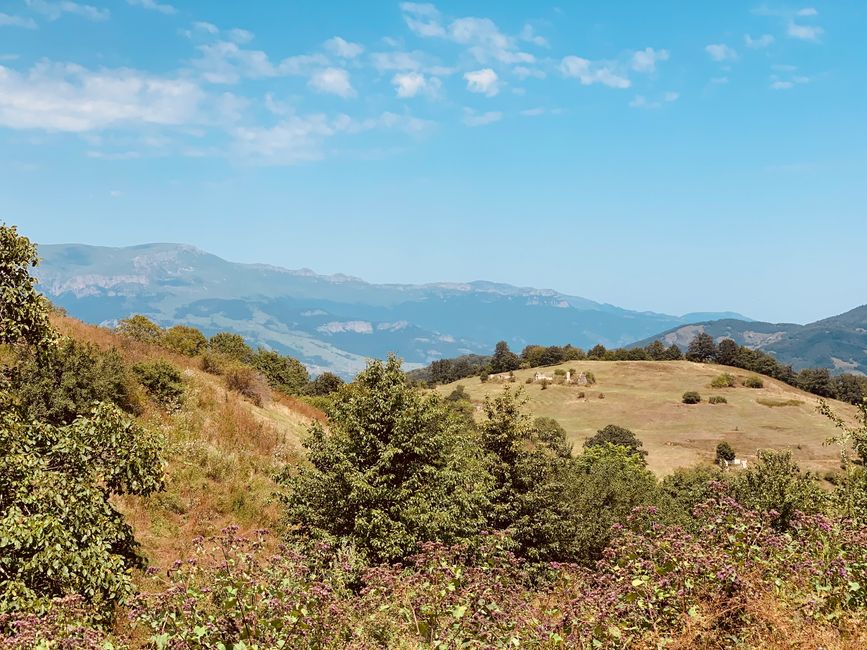
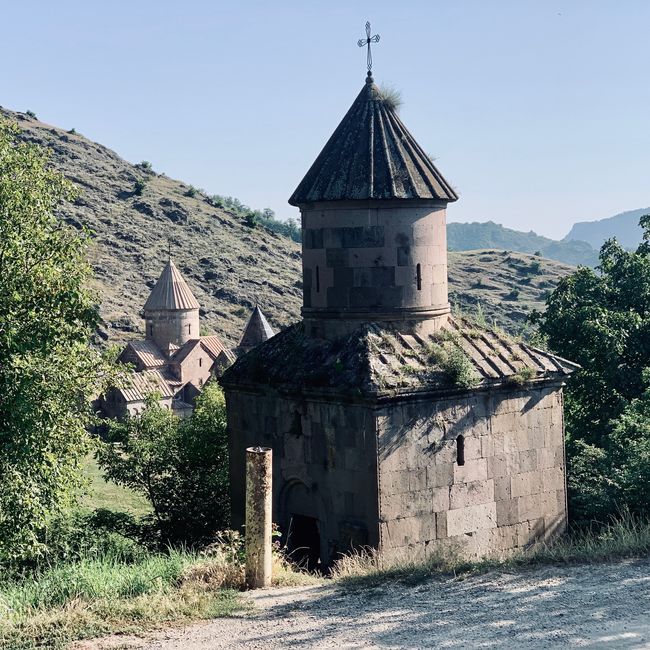
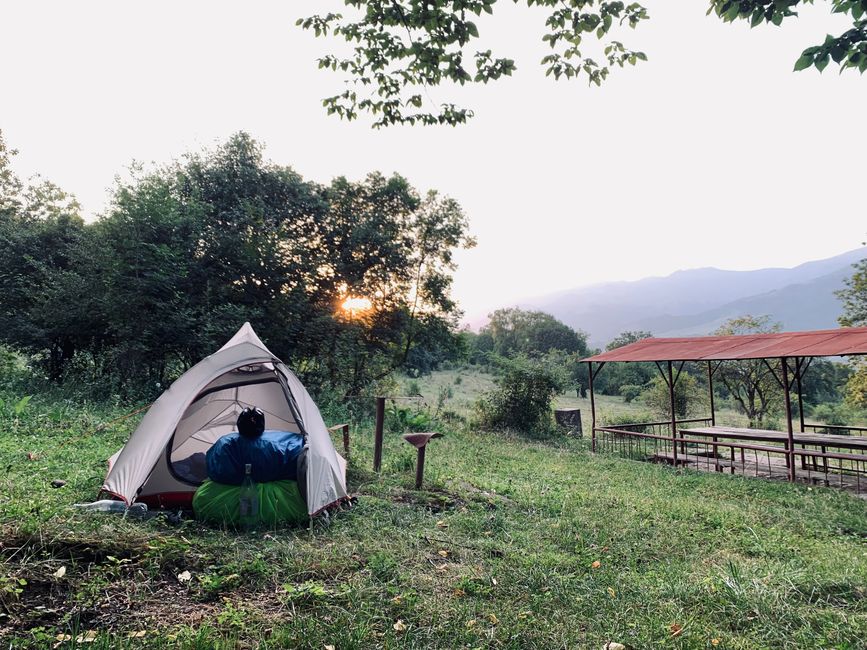
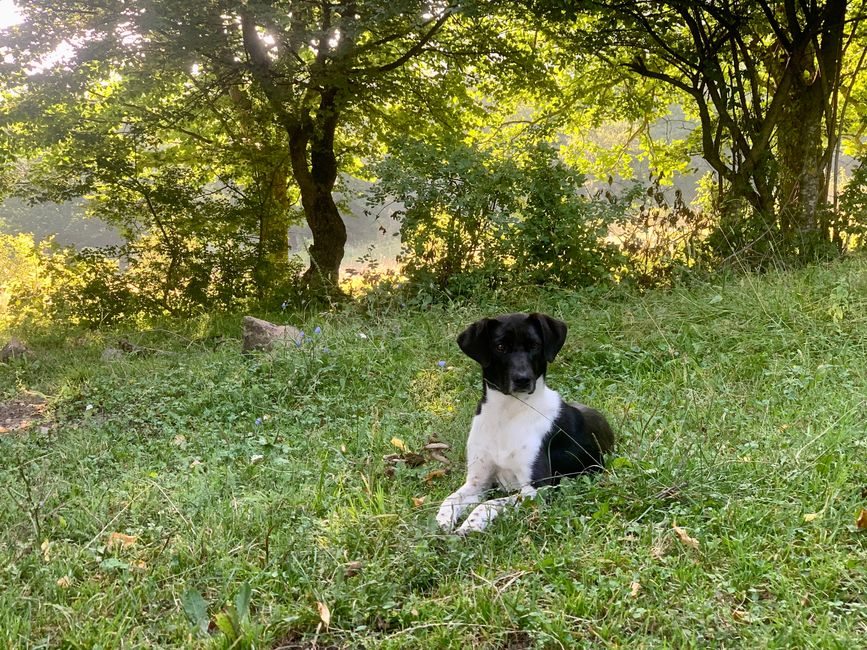
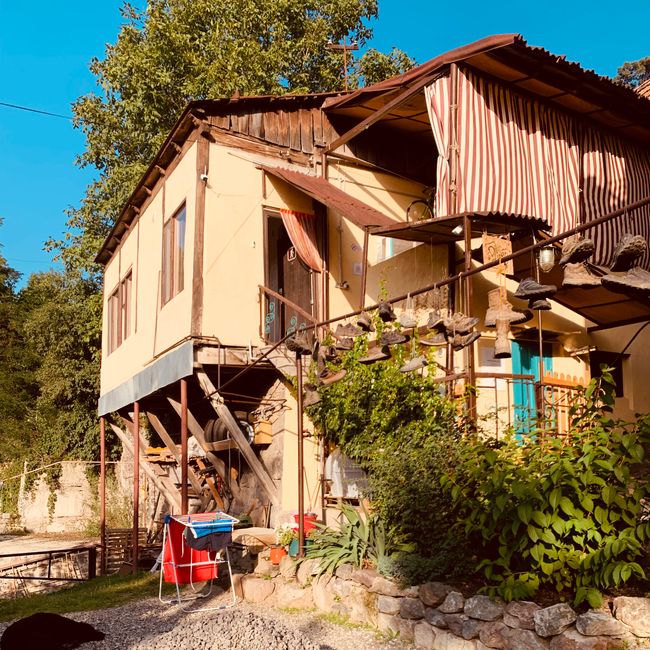
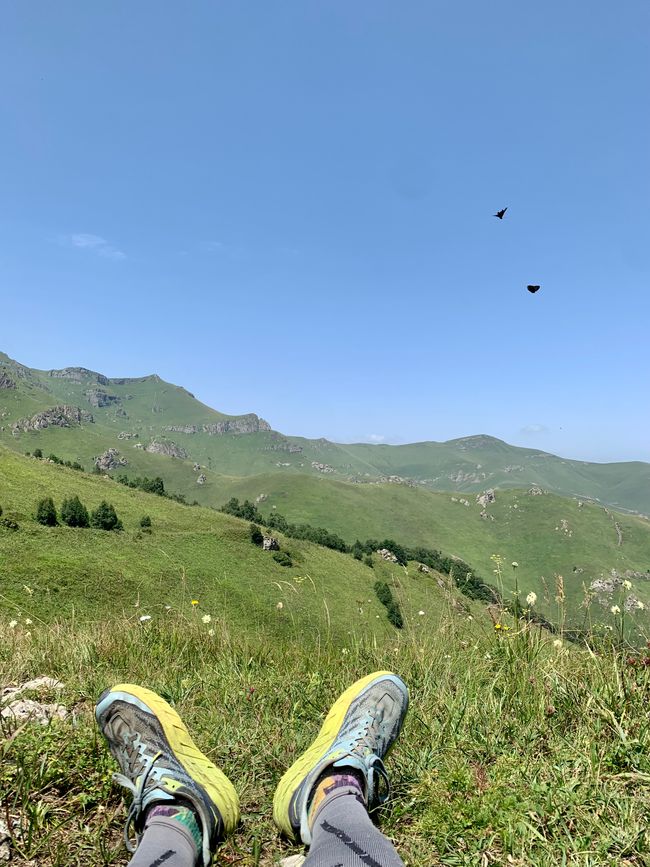
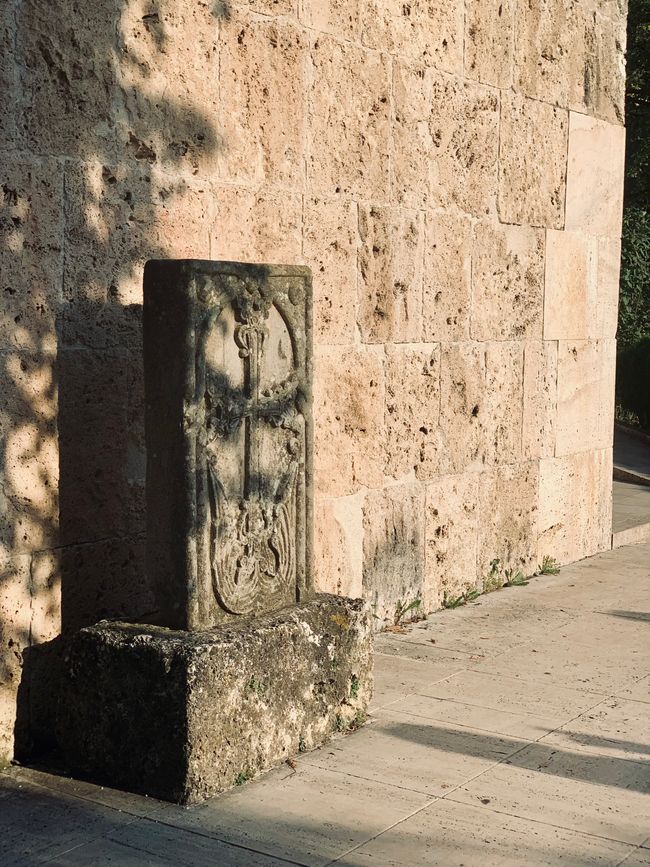
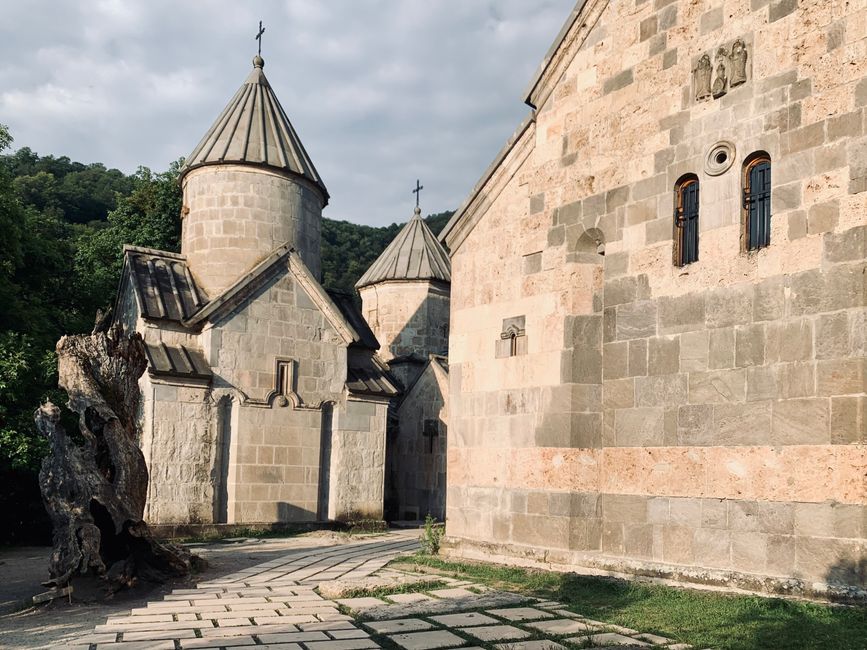
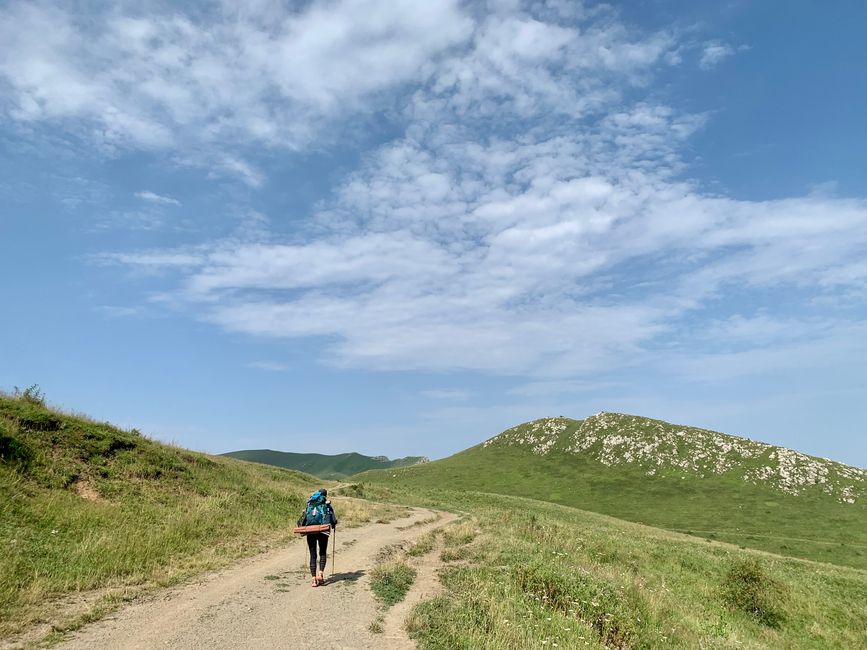
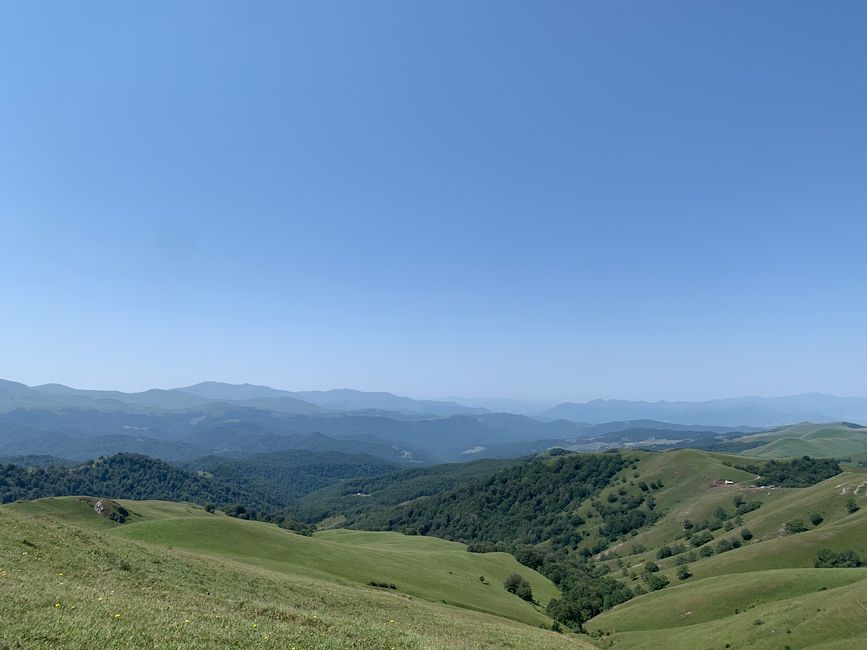
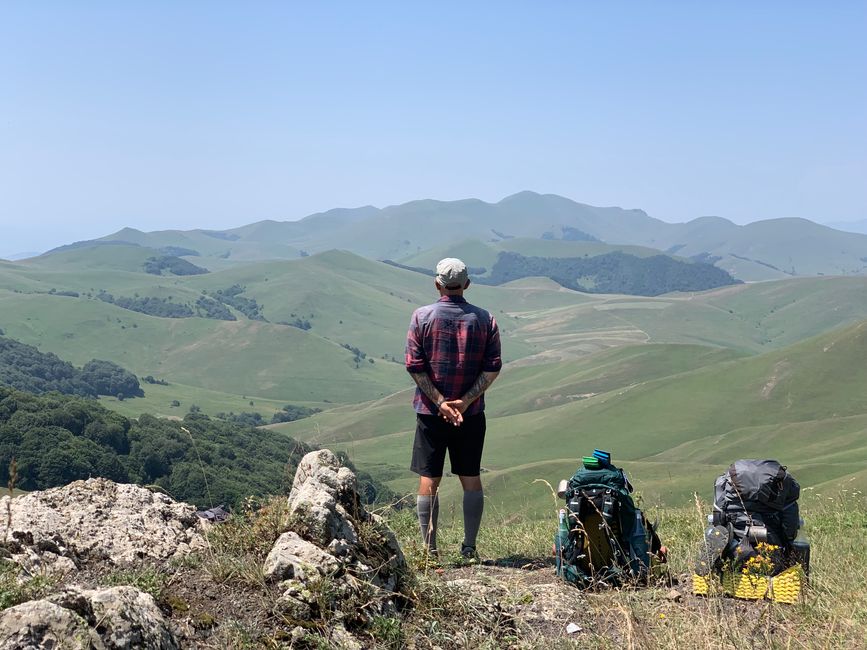
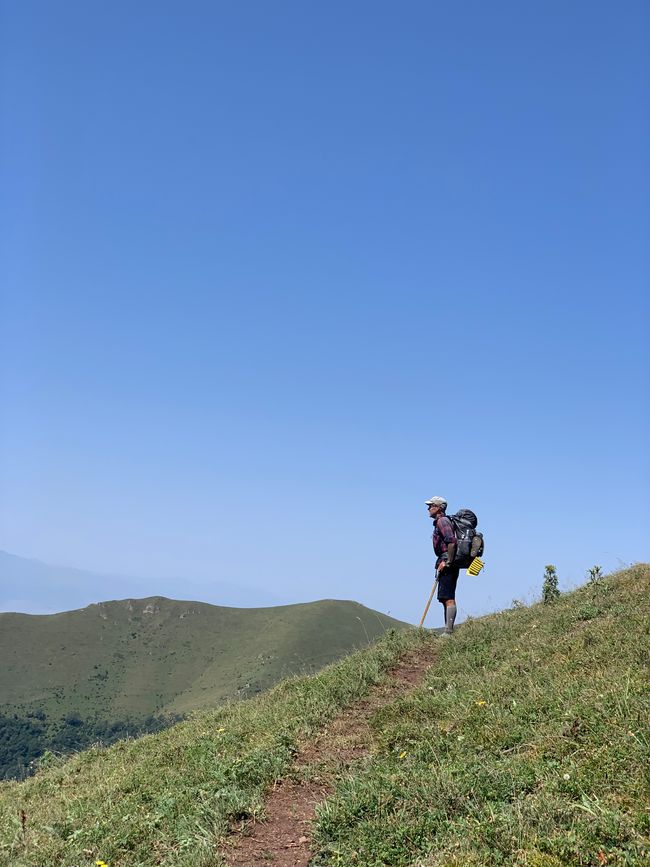
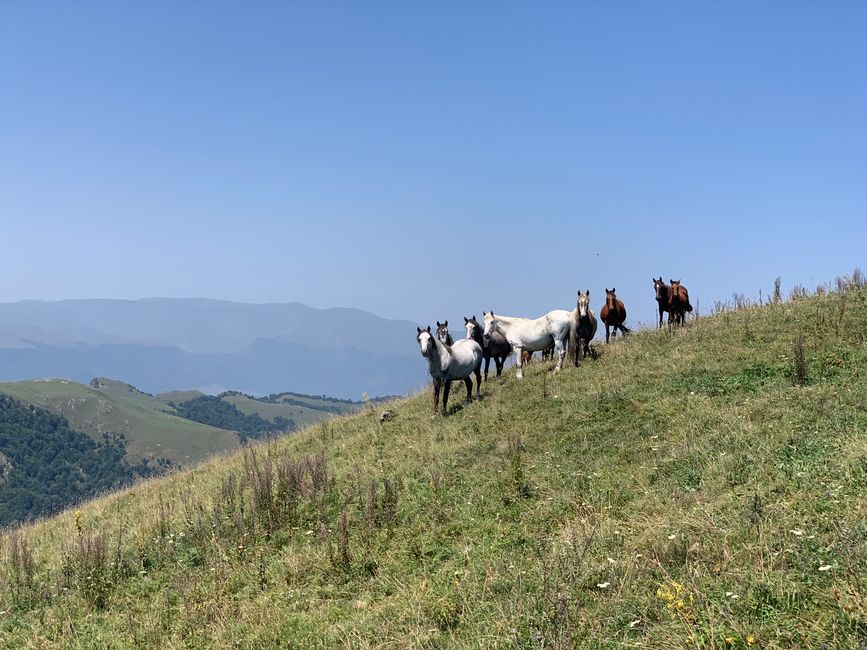
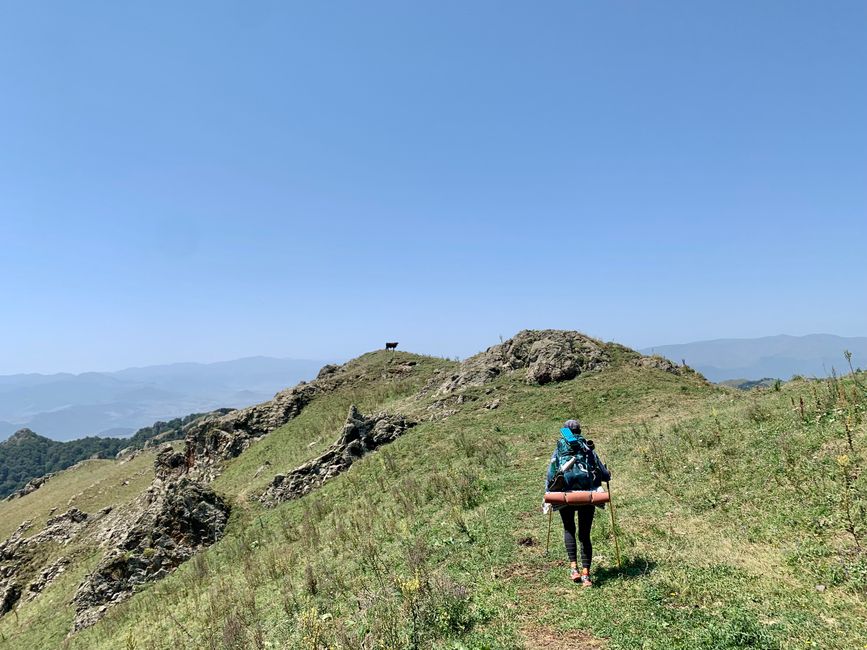
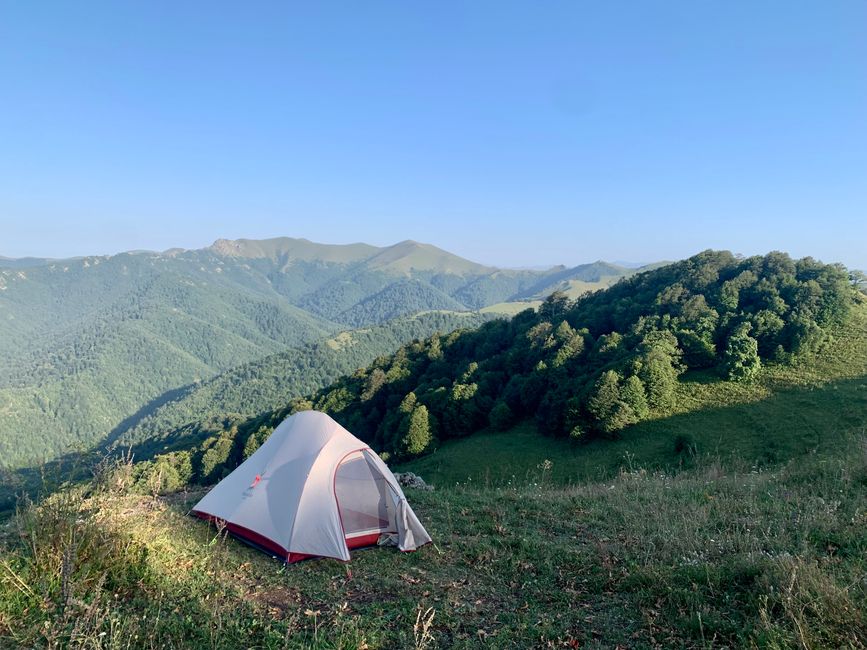
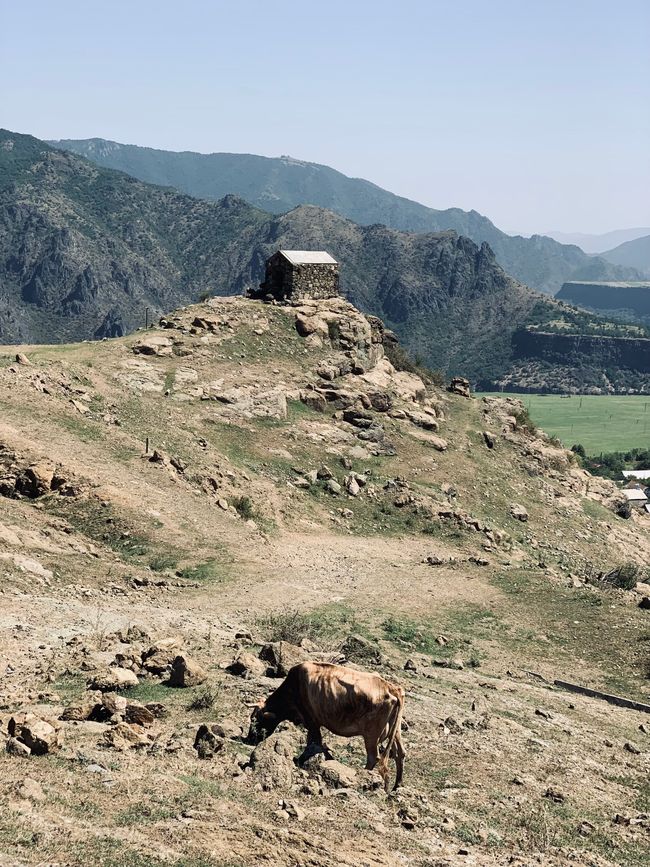
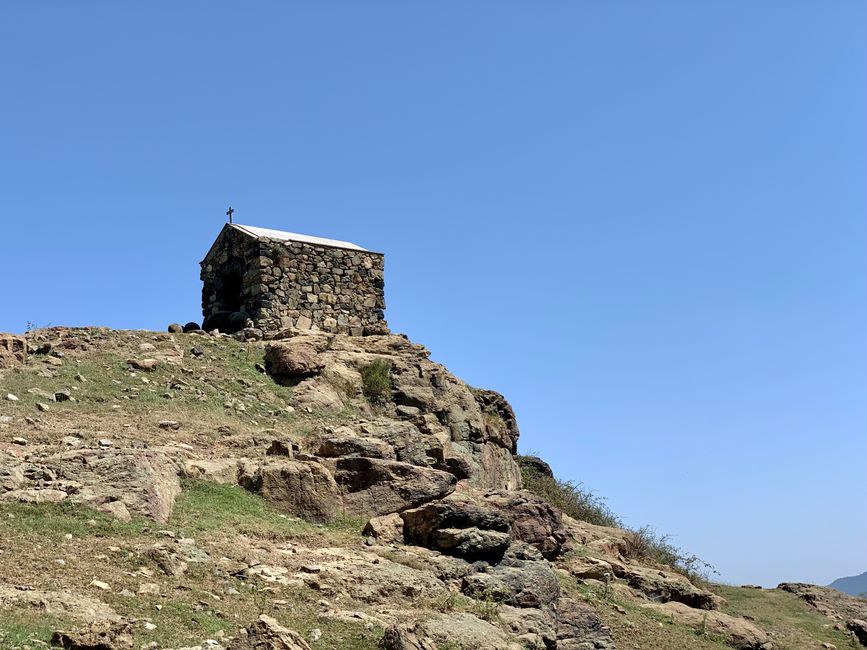
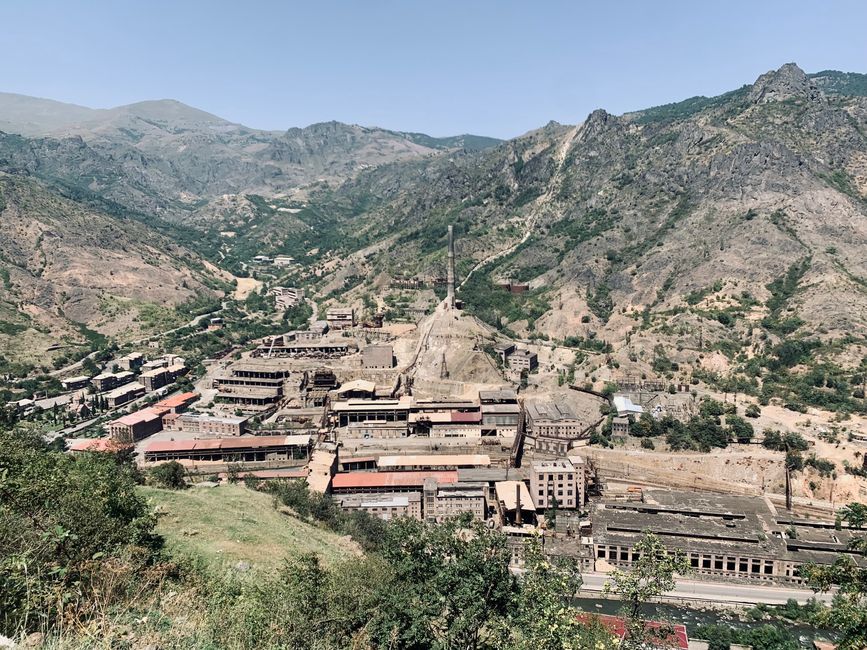
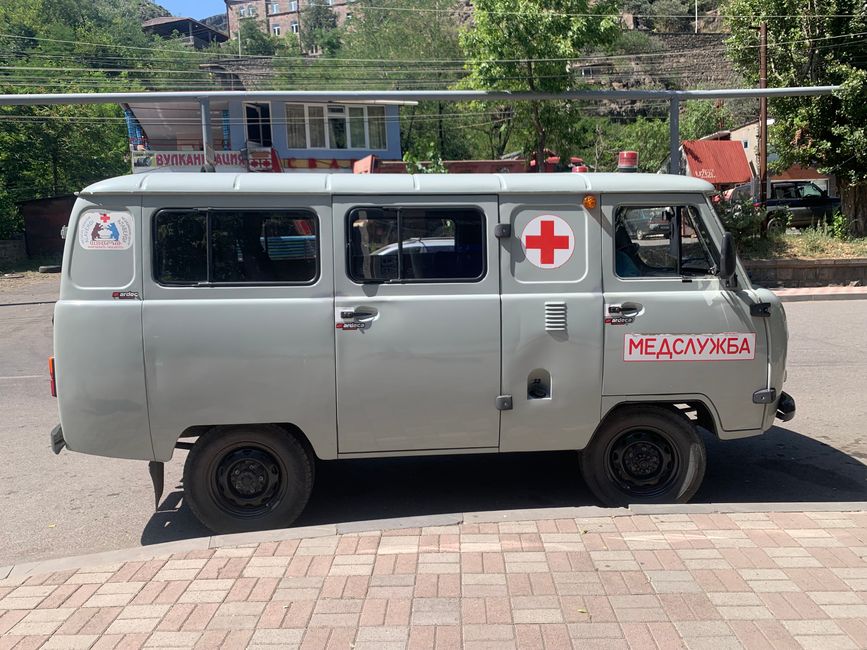
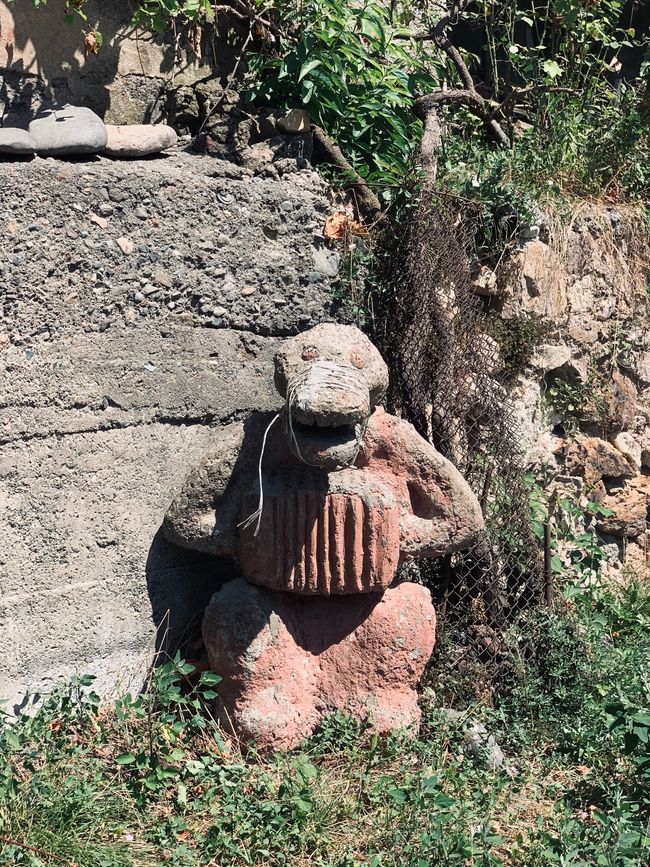
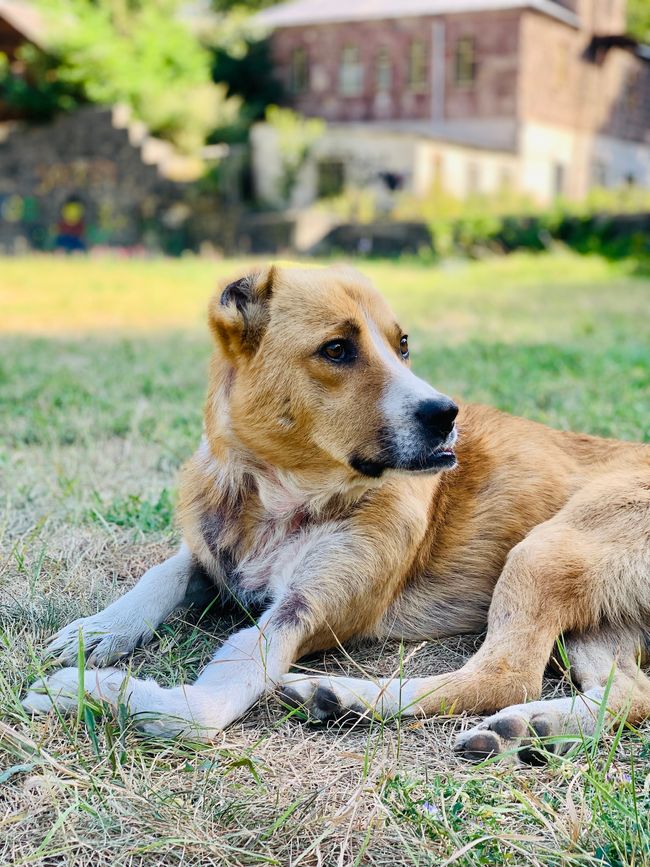
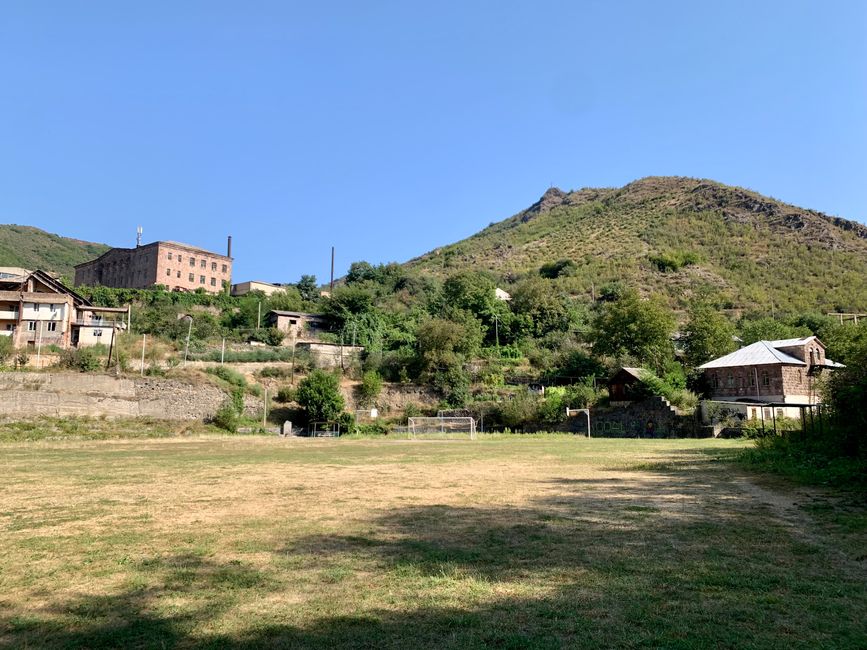
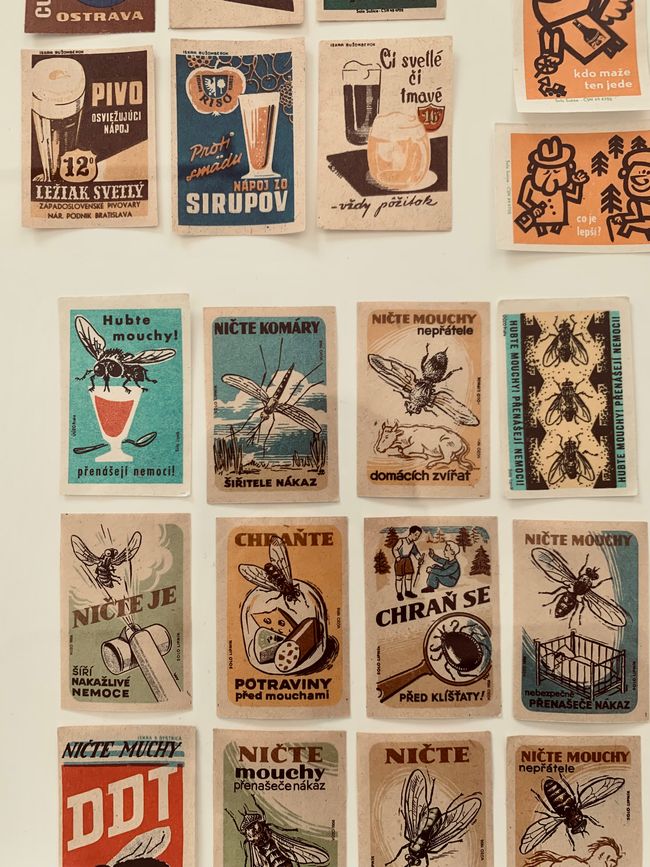
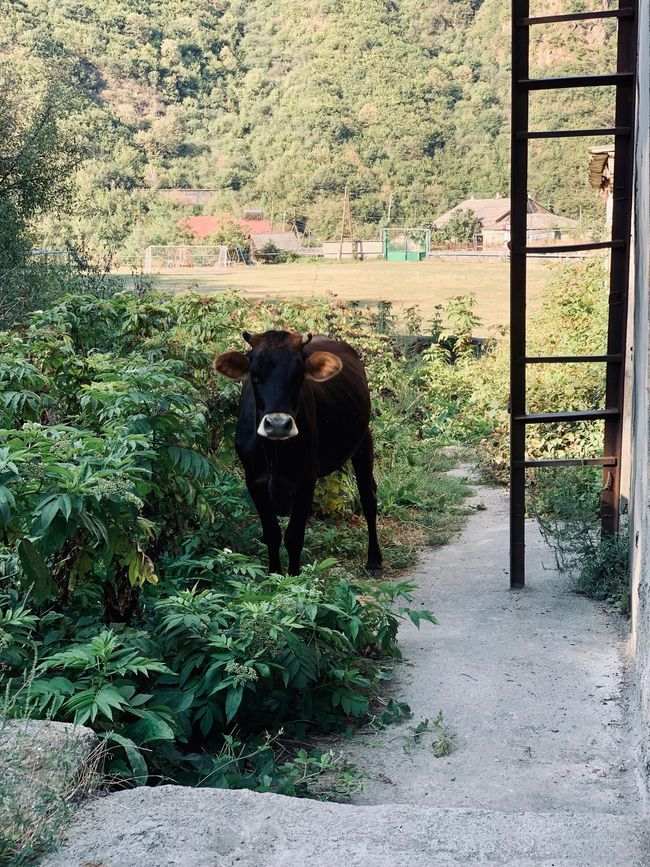
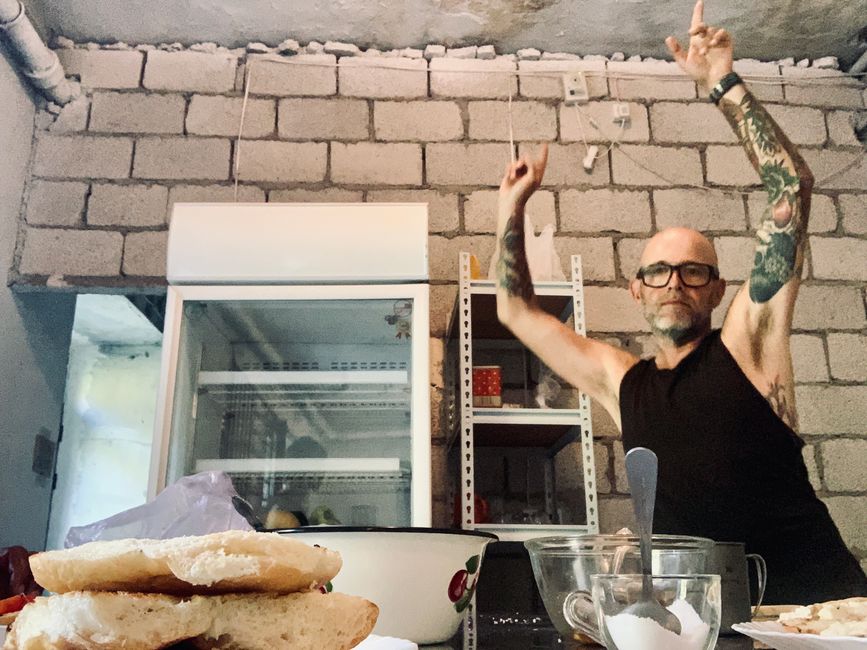
Пријавите се на билтен
The last hiking days in July on the "Legends Trail" with our friend Martin are wonderful, the stages are short and comfortable. The landscape is so diverse.
When we finally leave the gorge, which we have circumnavigated in a few days, a completely new landscape opens up before us.
At first everything seems a bit sparse, but when you walk through life and fertility pulsate.
We are allowed to spend three nights in two ruined cities that are not far apart. Old Halidsor and Old Khot. Huge and abandoned they nestle on the slope of the gorge. The ruins are evidence of animation in the past. They were inhabited for thousands of years until the Soviets, for practical reasons, ordered them to be resettled further up. Only cows roam around and near the brook you can see some vegetable gardens.
Finally, 11 days and 130km after we started from Bekh/Kapan, we arrive in the town of Goris. This is where the "Legends Trail" ends and this is where Martin's vacation comes to an end. A day later we say goodbye to our friend and the two of us continue our hike north.
To do this, we first take the bus to Shaqi, 40km away, to get back on the “Transcaucasian Trail” (TCT).
Past a waterfall, the path leads us into the narrow valley of the Vorotan. For 2 days its splashing and its cool moisture accompanied us to the reservoir of the same name. As beautiful as it is here, so grueling are now and then human-high structures that we push our way through, that throw us out of rhythm and only allow us to cover a short distance in a long time. Alongside this, flies of all sizes and with the ability to bite (or sting?) buzz around us. That can be pretty exhausting.
At some point, we have left the river, the lake is already behind us, we hike in the evening sun over fields and hills and even more fields. Farmers are bringing in the hay. The colors of the landscape slowly change from shades of green to yellow, gold and brown. A thunderstorm can be seen on the horizon at dusk. The camp is set up as it seems to be getting closer and closer. Then don't do it. Only the rumble of thunder and the flickering of lightning accompanies us to sleep. We should be spared for another day.
When we finally cross the national road M2, which leads south and Iran, and thus leave the Syunik region to hike through the Vayots Dzor region for the next few days, we meet Camille. An ambitious hiker from France. For a few days she slows down to walk with us. It is our first evening as a threesome when, after a steady climb, we set up our tents on a pass in the blue-grey twilight. The place seems perfect! A spring is nearby. The local shepherds, in their trucks that have been converted into living quarters, provide security. Even if they are amazed at our presence in this seclusion and smile a little at the tents. You can not imagine that these can be warm or even cozy. The military patrolling here due to the smoldering dispute with Azerbaijan gives us their ok to continue hiking the next day as long as we stay on the trails.
And then it's quick. Dinner is eaten, the dishes are done, the teeth are brushed and the procedure of arriving comfortably in tent and sleeping bag has also been mastered when a thunderstorm approaches. Only a short time before there was nothing to notice. The sky was unexcitedly cloudy. Now it is there. And how! It seems like several thunderstorms have a meeting above us. The distance between lightning and thunder is getting shorter and shorter. wind picks up. Rain turns to hail. Our little tent is being shaken, but it is holding up with all its might. After what feels like an eternity it's over. Everything went well - also with Camille, but the fear sits in our bones.
The next day acts as if nothing had happened. The sun greets us happily early in the morning. The sky shines in its most beautiful blue. The three of us still need something to digest this one hour.
We spend the next two nights in the town of Jermuk. Known for its healing waters and the mineral water of the same name that is widespread in the country. Here you can rest, wash and stock up on provisions.
We have now gotten used to the fact that even in larger cities, the supermarkets have a less extensive range than we are used to in the rest of Europe. We actually like that. It promotes creativity and flexibility.
The next stages await us with a new challenge. In addition to the nightly thunderstorms, bears are now also appearing. In this region of Armenia some of these animals are probably on the move and are sighted again and again.
Since the trail is supposed to go through a narrow gorge and since a bear encounter can be very likely, we skip this part of the trail and head straight up.
Temperatures are getting hotter and hotter. The mountain landscape here in Vayots Dzor is treeless. In the best case, lunch breaks take place somewhere upstairs, where a breeze provides gentle cooling.
Camille is always on the road with us or meets us at the sleeping place in the evening.
Camp life has now become ritualized and structured. The days and nights offer enough variety and unpredictability.
Every day we discover new species of flowers, thistle plants, butterflies and other insects and plants. Evening thunderstorms or near-thunderstorms keep the excitement high. There is much more weather than hot and cold, wet and dry...
During these hiking days, the emotional world in us resembles the landscape around us - with ups and downs, corners and curves.
Our bodies are challenged, show us their limits and the power they contain, surprise us and allow ourselves to be surprised in turn.
The paths are wide and narrow and sometimes not there at all. Sometimes they are marked, sometimes not and sometimes they are to be found. A highway on the map is such because it goes up high and then ends up in the most beautiful place at the top.
There is a lot of space in our backpacks - we carry our fears in the form of water, food and warm clothing. We don't want to let go of the first, the second is being planned more and more carefully and less and the third is so beneficial when it's cold.
In the most remote corners we meet people who live there or at least till the fields. Otherwise, we are often surrounded by peace, birdsong and the chirping of crickets.
We are now moving most of the time at 2000 m above sea level (+/- 500 m). Again and again we meet dogs sleeping/waking up around the tent at night. In the morning they are gone quickly. They are often shy animals that avoid close human contact, but they also benefit from being close to us.
A few days later, a few mountains and gorges further, we reach Yeghegnadzor.
The TCT is designed in such a way that every few days you come to a city where you can stock up on provisions and possibly also find accommodation. Even in the smaller villages in between, private rooms can be rented from time to time. We prefer to pitch camping in the countryside. We are very happy to extend our stay to 2 or more nights in the stage towns.
In Yeghegnadzor there should be a campsite. A green oasis in this arid region. Here it seems as if we are in another world. Everything in order, clean - the plants are well watered. There's a pool to cool off in and we meet other travelers from near and far.
The unstable weather at high altitudes makes us skip the high mountains of the Gegham Mountains, which should be the next 6-8 day stage. The last thunderstorm still lingers uncomfortably.
Viktoria and Ben, a couple who have their roots in many places in the world and also vacation here at the campsite, take us with them on their road trip. And so we end up in Sevan. A town on the lake of the same name. Like many cities in Armenia, it cannot be said to have charm. In other words, the charm of Armenia's towns and villages is that there isn't much going on, there are no frills, everything seems quite sober. The special thing about this country is certainly the ancient anchoring in Christianity. The ancient tradition of this religion deeply rooted in the people. Also without frills and great excitement. The churches and monasteries are presented in a beautiful simplicity. Artfully carved stone crosses, so-called Khachkars, are distributed throughout the country.
From Sevan we continue on our way north to the Lori region. The mountain landscape is now gentler. The peaks rise softly. In the first few days we roam on gravel roads through treeless terrain. Shepherds drive the cattle back to the villages or near their tent settlements in the evenings. They do their work on horseback or on foot.
Then suddenly you see them. Trees in groups and whole forests on top of them! Such a familiar sight. It feels good to finally be able to walk in the shade again.
The daily stages are now a little further. In the evening we are mostly exhausted. After 4 days we reach Dilijan. A small town in northern Armenia. In Soviet times this was a popular holiday resort and now it is again. You come here to hike and stroll. We come to rest and move on two days later.
It's supposed to be our final 5 day trek as we head from Dilijan to Alaverdi and finally to Tumanyan.
The last days in the mountains are again indescribable. There is nothing else to see but mountains, meadows, sky and vastness. From time to time we roam past a summer farm. Often simple huts made of tarpaulin, sheet metal and wooden slats. Sometimes larger settlements with stone cottages and stables. The cows look at us in amazement when we cross their meadows, the horses gallop away timidly. We marvel at eagles, vultures and other birds of prey flying in the wind. From time to time we meet a shepherd.
The mountain landscape shows itself in such a variety - enthroned powerfully around us, envelops us, shows us vastness and infinity; carries us, guides us, sometimes lost, sometimes saved, always humble.
After one last night high up, we are slowly approaching the tree line. Soon the noise of engines can be heard again and finally we reach the town of Alaverdi. A copper mining town with corresponding worker settlements. Everything seems a bit dreary - and looks a bit ugly. We quickly see that we can make progress. So we end up in the village of Tumanyan. Not much going on here. There is a café, two small grocers, a matchbox label museum and a hostel in a disused bath house. The streets are empty. In the evening the children meet to play on the soccer field.
After 40 days of hiking, looking and marveling, we have arrived in northern Armenia. After 470km on some sections of the "Transcaucasian Trail", we end the hike through Armenia. Here we stay for a week to rest and walk - before heading back to Georgia.
It was nice! Very very nice! We are now a little one-sided, exhausted and very happy!
During the days at the Bathhouse Hostel in Tumanyan we meet other travelers from time to time. The further we move away from Central Europe, the more heterogeneous our fellow travelers become. It's no longer just Germans, English, Spanish, French,... - we meet men and women from China, Iran, the Emirates, India, Belarus,... who have the motivation to go abroad are different. These encounters underscore once again the privileged situation we find ourselves in. Not only because we can easily travel almost the entire globe with our passport, but also because our life so far has made us not afraid to say where we are going next. Because we don't have to be afraid of returning to our home country at some point. Because no family is dependent on whether we achieve social advancement abroad. We have never had to wait anywhere to be granted entry into a country or not. And if we shouldn't get a visa, it doesn't really matter to us, then we just decide for another country... some of these encounters leave us helpless - we have to endure that.
Armenia wasn't really on our itinerary at the beginning and now it's the country that has touched us the most so far. Thank you very much Armenia! For your beauty! For letting us taste the peace, quiet and freedom of your mountains! Thank you for your kindness and willingness to celebrate life even though this time is difficult and painful for you!
Пријавите се на билтен
Одговор
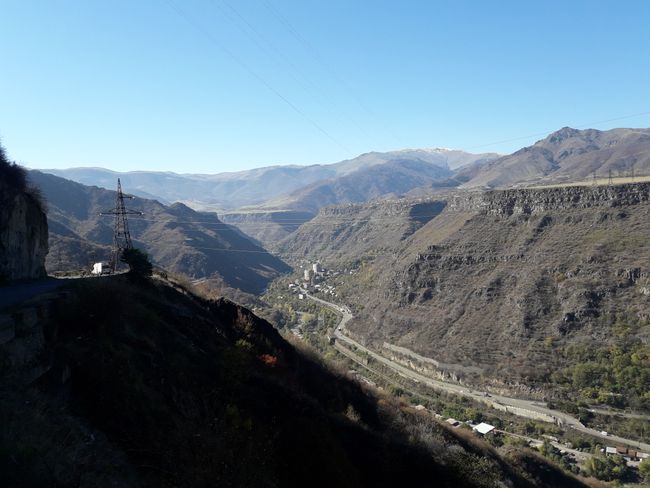
Извештаји о путовањима Јерменија
